
- Integrated Masters with PhD – Explained
- Types of Doctorates
An Integrated Masters with a PhD (iPhD) is a four-year postgraduate level programme that combines a one-year Masters course with a three-year PhD course. They allow students to familiarise themselves with their chosen topic, research methods and academic writing techniques before embarking on their own independent research project. An Integrated Masters with a PhD is particularly popular with international students and students who initially lack specialised knowledge or research skills.

Introduction
An Integrated Masters with PhD, also commonly referred to as either just an Integrated Masters degree or an Integrated PhD, offers a relatively new way to undertake postgraduate training. They maintain the depth and focus of a conventional PhD but offer a more comprehensive doctoral training experience.
Due to their growing popularity, both the number of universities offering these newer forms of PhD and the number of students applying to them has steadily increased.
This page describes what Integrated Masters with PhDs are, who they are for, their advantages and disadvantages, how they differ from conventional PhDs and how they are structured in terms of programme, eligibility and costs. This page is for you if you are considering applying for an integrated course, or simply want to know more about them.
What is an Integrated PhD?
An Integrated PhD is a four-year postgraduate programme. They involve undertaking a one-year Masters degree (MRes or MSc) in your first year, followed by a three-year PhD programme in your second to fourth year. Although the courses run back-to-back, a student can only progress to the second year if they show satisfactory performance in their first year. The one-year Masters and the three-year PhD are considered separately in terms of qualifications; therefore, a student who completes an Integrated PhD will receive both a Masters degree (MRes or MSc) and a PhD as opposed to a single postgraduate qualification.
The aim of an Integrated PhD is to provide a structured approach to doctoral studies, combining advanced PhD research with formal teaching in relevant subjects, research methods and communication skills.
As Integrated PhDs are relatively new compared to more regular doctoral pathways such as stand-alone or MPhil-upgraded PhDs, some professors informally refer to them as ‘New Route PhDs’.
Difference Between Integrated PhD and Regular PhD
The most significant difference between an Integrated PhD and a regular PhD is the addition of the one-year Masters degree at the beginning of the programme. This results in an Integrated PhD typically lasting four years, as opposed to the three years as with regular PhDs.
Integrated PhDs are structured in such a way that they provide students with a broader range of foundational skills than a regular PhD. The first year introduces you to a combination of taught elements, practical experience and advanced research skills. In a regular PhD this mode of teaching is missing as it is assumed you already have this level of knowledge.
The last significant difference between the two types of doctoral programmes is the ‘group’ aspect associated with the Integrated version. Since the Masters programme also includes other students enrolled in Integrated PhDs, you will have a small cohort with whom you will work closely alongside during your studies.
Who are Integrated PhDs suitable for?
Integrated PhDs can be an effective pathway for any student, but they stand out in two situations:
Scenario 1: International Students
The Higher Education system differs across countries , although not by a large amount, enough to where an unfamiliar student may struggle, especially when working independently. An Integrated PhD allows you to adapt to the UK education system by offering a more guided and hands-on approach to your learning and research process before you embark on your three-year research project.
It also has visa benefits. If an international student seeking a Masters degree in the UK already knows they want to follow it up with a PhD, enrolling in an Integrated PhD will save them from having to leave the country and re-apply for a visa after completing their initial postgraduate degree.
Scenario 2: Lack of undergraduate research experience or a relevant Masters degree
An Integrated PhD is useful for students who have academic abilities but lack the necessary background to be considered for a standard-route PhD. This usually occurs under one of three scenarios:
- The applicant is currently an undergraduate student or only holds a Bachelor’s degree,
- The student has a Masters degree, but in a subject only loosely related to the discipline they wish to pursue at doctoral level,
- The student has a relevant Masters degree, but the programme lacked a research focus, leaving the student with underdeveloped research skills.
Advantages and Disadvantages of an Integrated PhD
The advantages of an Integrated PhD are strongly linked to the international and inexperienced students they cater for. They offer students an effective means of gaining more confidence, knowledge and research skills in their field before starting a doctorate, and also provide visa benefits to international students who will be undertaking prior postgraduate study.
Integrated PhDs also enable students the possibility of receiving funding for the Masters phase of their programme, as will be explained in more detail in the ‘Funding Opportunities’ section.
Integrated doctorates have no obvious disadvantages, but are generally not suitable for those who already have a Masters degree or well-developed research skills in their chosen field. For these students, the additional costs and duration of an Integrated PhD can be avoided by opting for a traditional PhD for which they will already be suited for.
Finding a PhD has never been this easy – search for a PhD by keyword, location or academic area of interest.
The programme of study is naturally divided into two parts, the first for your Masters studies and the second for your PhD studies.
Your Masters studies will usually be divided into 180 module credits, half of which will focus on taught components and the other half on research components.
The modules will be tailored to your course, but they will include a variation of:
Taught modules:
- Subject-specific module – You choose one or two modules from a predefined list of topics within your subject area. Your selection should reflect the research area you want your PhD to focus on.
- English and Communication – Academic language and communication skills will be taught to prepare you for the ‘writing-up’ phase of your doctorate. A common misconception is that this module is similar to the English language requirement tests required to apply to a iPhD. In reality, the module will focus on learning how to critically evaluate research sources, write abstracts, literature reviews and conclusions, communicate in lab-based environments and present to audiences.
- Research Techniques – You’ll receive in-depth training to familiarise you with the different research methods and analytical techniques available to modern researchers.
- Research Proposal Development – You’ll work with your intended PhD supervisor to prepare a research proposal for your three-year PhD research project.
Research Modules:
You will carry out one or two small laboratory research projects under supervision for practical experience.

If you complete these modules with satisfactory performance, you will be awarded a Masters degree and will be considered for the following three-year PhD programme.
Each university has its own process for making this consideration, but most invite you to an interview with the supervisor you wish to conduct research with. The interview is used to confirm that you have acquired the specialised knowledge and research skills expected at masters level, and beyond that of someone capable of completing doctoral study.
If your interview goes well, you will be enrolled in your PhD programme. From this point on, your path will be the same as a regular PhD student. During your doctoral phase, you will conduct independent research and laboratory work for two years, followed by a final year of writing up and formally submitting your findings as a thesis. Your thesis, expertise and research competence will be assessed in an oral examination known as a viva. Upon successful completion of your viva, you will be officially awarded a PhD, and your studies will come to an end.
It should be noted that aside from the above, your university may offer optional modules which can equip you with a wide range of transferable skills.
Eligibility
Entry requirements for an integrated masters degree in the UK will vary from university to university, but the typical requirement is an Upper Second Class (2:1) honours Bachelor’s degree in a relevant subject. Equivalent international qualifications are also accepted.
If you are an international student and English is your second language, most universities will require proof of your English language proficiency through an exam certificate. It’s best to check directly with the universities which certificate types they accept, but the most common English language qualification requirement is an IELTS certificate, with a minimum overall score of 6.5 with no less than 6.0 in each category.
The typical annual tuition fee for an Integrated PhD in the UK is £4,712 per academic year for home/EU students (or £2,356 for part-time study) and £19,596 per academic year for international students (or £9,798 for part-time study).
As with all doctoral programmes, there are likely to be additional costs associated with your studies, such as bench fees for lab work, travel costs for collaborating and potential write-up fees for students who need more time to submit their thesis. You can get more information about these additional costs on our cost breakdown page .
Funding Opportunities
You can obtain funding for Integrated PhDs in the same way as for regular PhDs. Funding is usually provided by one of the seven UK Research Councils and research charity organisations such as the Wellcome Trust ; grants, scholarships and funded opportunities can be found directly in our searchable database .
Funding can either be partial (tuition fees only) or full (tuition fees and living costs). Most funding providers also cover the tuition fee for the Masters degree programme due to being integrated with the PhD, however, you should confirm this on a case-by-case basis.
As with regular PhD funding, the fully-funded opportunities are generally limited to home and EU students.
It’s also worth noting that PhD programmes which include an integrated Masters degree are eligible for a Doctoral Loan , even if you already have a postgraduate Masters degree from a previous university. Applications for Doctoral Loans must be made directly to Student Finance England and you must first be registered for a full doctoral degree. Due to application restrictions, you won’t be able to apply for a separate Postgraduate Masters Loan for the integrated Masters phase of your degree.
Availability
You can search for Integrated PhDs in three ways:
- Our Search Page – Search for the term ‘Integrated’ in our comprehensive database of STEM PhDs .
- University Search Pages – Universities advertise their Integrated PhDs on their postgraduate search pages. You can find them by searching the name of the university followed by “ search postgraduate courses ” directly in Google.
- Funding Body Websites – Funding bodies which provide studentships for Integrated PhDs sometimes advertise the positions on their website. A list of the most common funding providers can be found here: PhD Studentships .
Browse PhDs Now
Join thousands of students.
Join thousands of other students and stay up to date with the latest PhD programmes, funding opportunities and advice.

25,000+ students realised their study abroad dream with us. Take the first step today
Here’s your new year gift, one app for all your, study abroad needs, start your journey, track your progress, grow with the community and so much more.

Verification Code
An OTP has been sent to your registered mobile no. Please verify

Thanks for your comment !
Our team will review it before it's shown to our readers.

Integrated PhD
- Updated on
- Apr 26, 2023

Pursuing a PhD is the ultimate goal of a scholar as it offers immense opportunities to delve into the ocean of knowledge of any domain of study. Involving a painstaking research process, a PhD can stretch from 3-5 years which is a colossal amount of time to immerse into a particular discipline. An Integrated PhD is a viable alternative to a regular doctoral degree as it saves you from the additional time and effort that goes into making the transition from a master’s degree to a research degree. If you’d like to fetch the information associated with different aspects of an Integrated PhD, continue reading our blog through which we aim to elaborate on the key essentials of this degree and the major institutions you can pursue it from.
This Blog Includes:
What is an integrated phd, difference between regular phd and integrated phd, who should study an integrated phd, documents required, submitting the application with a project title, submitting the application without a project title, applying for cdt programme, imperial college london, university of copenhagen, university of warwick, brunel university london, university of southampton, national university of singapore, loyola university chicago, boston college, university of rochester.
Integrated PhD is a research programme mainly comprising of Science , Technology, Engineering and Mathematics [ STEM ] fields. Some other similar doctoral programs are also available in Arts , Social Sciences and Humanities which are funded by the Research Councils. This 5-year degree program combines a master’s course with a PhD in which the first 2 years, students are supposed to study an MSc , MTech, MA or MRes and the next 3 years are dedicated to research work and a core PhD course. However, the duration may vary from university to university. On successful completion, scholars are awarded a doctoral degree.
- PhD in Education
- PhD in Pharmacy
- PhD in English
- PhD in Physics
- PhD in Economics
How Does Integrated PhD Programme Works?
Your master’s program will be inclined towards providing subject knowledge and accumulation of research skills important for your doctorate. In fact, the master you study may actually be called a Master of Research (MRes) rather than a taught MSc or MA.
How is Integrated PhD Graded?
While the master’s portion is graded as a standalone qualification, the latter part is assessed on your thesis and performance in the viva voce.
Why Should You Study Integrated PhD?
For students looking forward to working in a field that would require a blend of qualifications and specific research training, an integrated doctorate course can be a great way to prepare for this. The extended degree program is designed to offer the skills and competencies you need. Students will gradually acquire logical ways to smoothly transcend from master’s to doctoral research.
Are you wondering what type of doctoral degree is right for you? Choosing between similar courses is a difficult task, but if you have the key differences in front of you, it becomes easier to make a concise decision. In order to pursue a regular PhD, scholars are required to have a master’s degree as the minimum qualification, whereas an Integrated PhD can be started just after completing your graduation. While a regular PhD can be done in any subject you want and is time-consuming, an integrated program takes fewer years to finish and also offers you the flexibility to select your field of interest.
An integrated PhD is an excellent choice for anyone who believes they might benefit from more formal research training before pursuing an independent PhD topic. People who apply for Integrated PhDs, on the other hand, tend to fall into one of two categories:
- Bachelor’s degree holders who do not have a Master’s degree
- International students who want to familiarise themselves with the higher education system in their host country before pursuing a PhD.
Entry Requirements
- A 2:1 undergraduate degree in a related topic is normally required for admission to an integrated PhD.
- International students may additionally be required to achieve English language proficiency criteria.
- Most courses will accept an IELTS score of 6.0 overall, with a minimum of 5.5 in each section.
- Check the programme description of your chosen PhD programme for detailed entry criteria.
Typically, applications are submitted using an online gateway on your university’s website. The specific documents necessary may vary, but in general, you will need to provide a combination of the following:
- Personal statement
- Cover letter
- Academic CV
- Research proposal (if applicable)
Also, Read: How to pursue a PhD (Doctor of Philosophy)?
Application Process
Depending on the nature of the curriculum, there are a few alternative ways to apply for an Integrated PhD.
Some integrated PhDs will require you to select a research subject before applying (much like a normal PhD). Once you’ve identified a university that offers an integrated option for the subject you want to study, you’ll need to determine whether you want to propose your own research topic or apply for a PhD that has already been designed for you. In either case, reach out to potential supervisors before submitting your application.
The supervisor will be indicated in the advertisement if you are applying for a pre-designed PhD. If you created your own project, you’ll need to identify a professor whose expertise matches your research interests. In both circumstances, inform your potential supervisor that you will be applying for an integrated programme. This can help them assess if they are a good fit for the project.
Some integrated PhD programmes do not require students to choose a research subject before beginning their study. Instead, in your first year, you will engage in numerous minor research projects alongside potential supervisors, allowing you to make an educated decision on your eventual PhD topic. During your first year, you will typically develop your research proposal. This is very prevalent in STEM disciplines.
You will not need to contact prospective supervisors before applying for these projects. However, when completing your application, it is still a good idea to consider areas of research that interest you.
Centres for Doctoral Training (CDTs) finance many integrated PhD curricula. These are consortiums formed by groups of research entities (often universities and industry partners) that provide training for PhD cohorts and provide fully supported studentships. If you want to apply for an integrated CDT PhD (also known as a 1+3 programme), you can do so through your host university or through the CDT itself.
Individual projects are normally offered under each CDT programme, so you’ll need to mention which one you’re interested in when you apply. You may be prompted to mention a preference in your application yet may be matched with a different project.
Major Universities
This PhD program is a new model of doctoral training which retains the rigour, depth and focus of a conventional PhD while also extending a broader training experience. Let us briefly look at some of the most renowned institutions in the world offering excellent integrated doctoral courses:
Established in 1907, this public research university is a one-of-a-kind in the UK, focusing extensively on Science, Medicine , Engineering and Business. Imperial College London aims to offer the next generation of PhD scholars the ability to get ahead of the curve. It provides three different Wellcome Trust Integrated PhD programs: MRes and PhD in Epidemiology, Evolution and Control of Infectious Diseases; MRes and PhD in Molecular and Cellular Basis of Infection and MRes and PhD in Theoretical Systems Biology and Bioinformatics. The program typically comprises a 1-year master’s degree followed by a 3-year PhD.
Also, the funding for Centres of Doctoral Training (CDT) and Doctoral Training Partnership (DTP) is provided by the Research Councils. Students recruited to these centres come from a broad spectrum of disciplines and have access to the facilities and supervisors at the partner institutions.
To explore the centres that interest you, reach out to our counsellors at Leverage Edu and know more about the different training programmes and available studentships.
It is quite interesting to know that the new graduates from the University of Copenhagen have established a unique record of setting up 290 businesses in a year on average. But what makes this oldest university of Denmark established in 1479 so popular? Not only prominent in the field of Humanities and Social Sciences, the institute also offers excellent research facilities to students pursuing a career in Science and Medical Sciences. Its Integrated MSc and PhD programme scheme lasting for a duration of 3+5 years gives the option to combine the MSc optional programs with the writing of the PhD dissertation. The scheme is divided into the following two parts:
- Part A – The students are required to complete the MSc program within two years before concluding the entire Integrated PhD program.
- Part B – The PhD program begins only when students have completed their part A, fulfilling the required eligibility criteria of the course.
Also, Read: PhD in UK
Known to rank 64th in the world by QS World University Rankings 202 3 and 8th in the UK by The Guardian 2023 league table, the University of Warwick is framed as internationally-leading research excellence. The university is committed to attracting and nurturing students across the world since 1965. Its new centre for doctoral training aims to develop mathematical concepts to address challenges in healthcare, financial and industrial sectors through an integrated research program. This MSc+PhD in MathSys (Mathematics for Real-World Systems) combines 1-year full-time MSc and a 3-year PhD, perhaps closely with one of the partner institutions. Other courses also include a 4-year Integrated PhD in Material Modelling.
Founded in 1966, Brunel University London is home to nearly 13,000 students from more than 100 countries across the globe. The Brunel Integrated PhD brings together structured professional, research and subject training for typically 4 years. Once completed, scholars are awarded a PhD with an Integrated Postgraduate Diploma in Research. The coursework covers training and professional skills as well as providing field-specific content. You can choose your integrated research among the following courses:
- Business and Management
- Mathematical Sciences
- Advanced Manufacturing and Enterprise Engineering
- Electronic and Computer Engineering
- Mechanical Engineering
- Information Systems and Computing
- PhD after MTech
- PhD after MBA
- PhD after BTech
- PhD after MCA
Recognised as a founding member of the Russell Group , University of Southampton aims to develop critical thinking and independent learning skills in students to help them become future leaders. The university offers an Integrated PhD in Education to equip students with foundational research skills and opportunities to develop proposals during the early stages of the program. The coursework can be studied both full-time (4-year) and part-time (9-year). This is an intensive program integrating a substantial number of seminars, lectures, workshops, etc. conducted by a supervisory team with specialist expertise in your area. Other such programs include a PhD (Integrated) in Biomedical Science – Cell Biology and Immunology of Cancer designed to create the next generation of leaders in cancer study and a PhD in Web Science broadly engaged in the Digital Economy.
Transformative and multidisciplinary research at NUS has been consistently nurturing effective global leaders, impacting society and transforming lives for the better. The National University of Singapore was founded in 1905 and is known to be the first autonomous research in the country. The NUS PhD/MEng program allows students to chase ideas, seek new experiences and turn their ideas into reality. In a vibrant research-intensive environment, MEng students with PhD calibre can subsequently upgrade their course to the doctoral program after a year of study.
The Loyola University Chicago – Stritch School of Medicine offers an MD/PhD program incorporating medical and graduate education with high-impact scientific research. Since 1870, the university has strived to create integrated educational programs that are designed to be individualized and tailored to meet the professional goals of every student. The individuals demonstrating a strong interest in research can definitely opt for an Integrated PhD which aims to cover both degrees in 7 to 8 years of duration.
Graduates interested to delve deeper into the field of social work can consider Boston College for a combined MSW and PhD in Social Work . The college allows talented students to embark on their PhD coursework before completing a degree in the Master of Social Work . One of the greatest advantages of pursuing an Integrated PhD can be the elimination of redundancy between a master’s degree and doctoral program – saving approximately one year compared to the traditional PhD. At this private institution founded in 1863, international students get to acquire the fundamental American social welfare system and social work practices.
- PhD in Australia
- PhD in Canada
- PhD in Europe
Planning to put your nursing education in high gear? The University of Rochester , founded in 1850, offers a full-time MS-PhD combing a master’s in nursing alongside a research-intensive curriculum or 6 nurse practitioner speciality disciplines. As a scholar, you will be allowed to teach future healthcare experts in clinical and academic settings. The class size is generally small and limited to academically strong students ensuring that every student receives support and close mentorship from faculty. Students can choose among the following MS-PhD speciality courses:
- Nurse Practitioner Courses for Family, Pediatric, Adult-Gerontology Acute Care, Adult-Gerontology Primary Care, Family Psychiatric Mental Health or Pediatric/Neonatal
- Nursing Education
Ans. The Integrated PhD combines taught specialist modules, training and skills courses, and research studies. This enables Postgraduate Researchers (PGRs) to widen and deepen their topic knowledge, as well as to broaden and develop their expertise in other directions.
Ans. While a traditional PhD can be completed in any subject and takes time, an integrated programme takes fewer years to complete and allows you to choose your field of interest.
Ans. A four-year postgraduate programme is an Integrated PhD. In the first year, you will complete a one-year Master’s degree (MRes or MSc), followed by a three-year PhD curriculum in the second through fourth years.
If you are aiming to increase your chances for timely completion of your doctorate program in comparison to those taking the traditional route of PhD, then an Integrated PhD is most suited for you. You can get in touch with our experts at Leverage Edu who can help you throughout the application process from choosing the right PhD degree to making an impressive application and drafting SOPs and LORs to get successfully shortlisted into your dream university abroad.
Team Leverage Edu
Leave a Reply Cancel reply
Save my name, email, and website in this browser for the next time I comment.
Contact no. *
Hi, I want to pursue PhD. I had done my B’Tech in computer science. I am a working professional and have 16 yrs of exp. How can I do that?
Hi Naresh, Our experts are here to guide you on your path of pursuing a PhD in the field of your choice. Get in touch with us at 1800572000 and book a free e-meeting.
I want to pursue LLM-PHD integrated in Law currently I’m in my semi final year of LLB. Which recognized universities abroad offer the same?

Leaving already?
8 Universities with higher ROI than IITs and IIMs
Grab this one-time opportunity to download this ebook
Connect With Us
25,000+ students realised their study abroad dream with us. take the first step today..

Resend OTP in

Need help with?
Study abroad.
UK, Canada, US & More
IELTS, GRE, GMAT & More
Scholarship, Loans & Forex
Country Preference
New Zealand
Which English test are you planning to take?
Which academic test are you planning to take.
Not Sure yet
When are you planning to take the exam?
Already booked my exam slot
Within 2 Months
Want to learn about the test
Which Degree do you wish to pursue?
When do you want to start studying abroad.
September 2024
January 2025
What is your budget to study abroad?

How would you describe this article ?
Please rate this article
We would like to hear more.
Imperial College London Imperial College London
Latest news.

Voluntary corporate emissions targets not enough to create real climate action

Imperial and CNRS strengthen UK-France science with new partnerships

New AI startup accelerator led by Imperial opens for applications
- Postgraduate doctoral
- Application process
- Choose a course
Integrated PhD
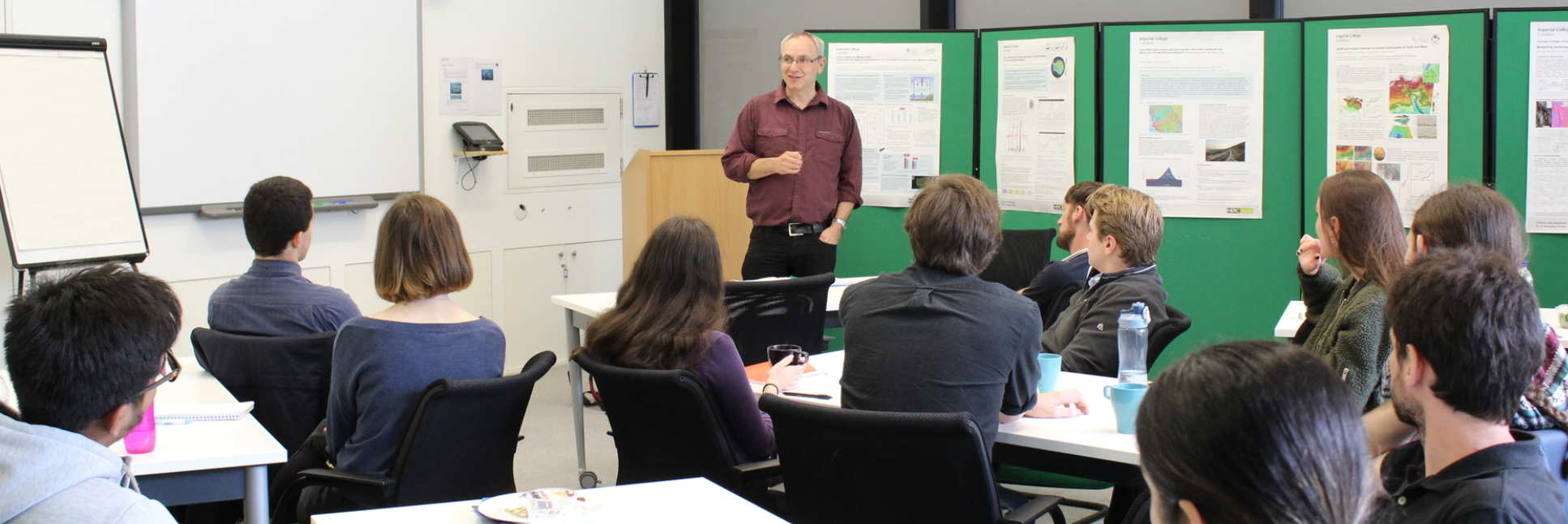
Studentships
Funding for our CDTs and DTPs is provided by Research Councils so eligibility criteria apply for the studentships that they offer. This is outlined on the UK Research and Innovation website . They may also consider self-funding applicants for non-funded projects.
A new model of Doctoral training
Integrated PhDs provide a new model of postgraduate training. They retain the depth, rigour and focus of a conventional PhD while also providing a broader training experience.
While the specific training routes may vary, they typically consist of a one-year Master's course (MSc or MRes) which leads straight into a three-year PhD.
This new style of doctoral training is available within our Research Council-funded Centres for Doctoral Training (CDTs) and Doctoral Training Partnerships (DTPs).
CDTs and DTPs
Our CDTs and DTPs recruit cohorts of students from a broad spectrum of disciplines, creating vibrant multi-disciplinary communities.
The diversity of students recruited to these centres reflects the breadth of research which they cover.
As well as benefitting from a variety of training opportunities and cohort-building activities, students studying within these centres may also have access to a supervisor and facilities at a partner institution.
Doctoral Training Partnerships (DTPs)
We offer the following DTPs:
- Science and Solutions for a Changing Planet , funded by the Natural Environment Research Council (NERC) and hosted by the Grantham Institute – Climate Change and the Environment.
- Medical Research Council Studentships – Imperial College Medical Research Council Doctoral Training Partnership (DTP) , funded by the Medical Research Council (MRC)
- Photonics , available through several EPSRC-funded Doctoral Training Partnerships (DTPs) in which Photonics research group members are involved.
Imperial is also a partner in London Interdisciplinary Social Science Doctoral Training Partnership (LISS) , funded by the Economic and Social Research Council (ESRC).
Centres for Doctoral Training (CDTs)
Imperial currently hosts the following Centres for Doctoral Training. Explore the centres that interest you to find out more about their training programme and available studentships.
- Advanced Characterisation of Materials
- Artificial Intelligence for Healthcare – UKRI Centre for Doctoral Training
- BioDesign Engineering
- Chemical Biology - Innovation for the Life Sciences
- Modern Statistics and Statistical Machine Learning
- Next Generation Synthesis and Reaction Technology
- Nuclear Energy Futures

Graduate School of Biomedical Sciences (GSBMS)
About gsbms, gsbms academics degrees & programs master of science accelerated interdisciplinary biomedical sciences interdisciplinary biomedical sciences clinical laboratory sciences program dental linker program biomedical science & management program doctor of philosophy integrated phd program program overview biochemistry & molecular biology cell biology microbiology & immunology pathology pharmacology physiology m.d./ph.d. program gsbms catalog gsbms student outcome data gsbms affiliated sites elearning, admissions & financial aid, guaranteed interview agreements, academic calendar, registration, student life, career planning, gsbms alumni profiles, academic regulations, integrated ph.d. program, general format.
The Integrated Ph.D. Program (IPP) provides the most direct route to a Ph.D. degree in the Graduate School of Biomedical Sciences (GSBMS). In this program, students enter GSBMS without initially declaring an academic discipline. Graduates receive a Ph.D. in one of our existing programs – biochemistry & molecular biology, cell biology, microbiology & immunology, pathology, pharmacology, or physiology.
Student Support
Qualifying students receive a financial aid package that includes a full tuition scholarship, stipend, medical and hospitalization insurance (annual premium paid by the GSBMS), and a waiver of the Student Health Services fee. Be advised, due to funding limitations and budgetary restraints for international travel, the GSBMS will only accept applications to the PhD program from international students if they are currently undergraduate or graduate students in the U.S. with an F1 visa.
Ph.D. Degree Timeline
Read about Tim's journey to research at NYMC and hear what our alumni have to say about our Ph.D. program.
Milestones and Student Progress
- Advisors and committees Upon entry to the program, each student is assigned a first-year Academic Advisor who will (a) provide guidance with regard to GSBMS regulations and procedures, (b) advise the student on course and rotation selection, and (c) monitor the student's progress in the program. Each first-year research rotation will have a Rotation Advisor (a faculty member hosting a student in their laboratory for the period of that rotation). Once the student has declared a program, the Principal Investigator of the research laboratory the student has entered becomes the student’s Dissertation Advisor. The Program Director for the specific program the student has entered becomes the Academic Advisor, with special emphasis on course selection and guidance related to GSBMS program requirements and procedures. The Dissertation Advisor and the student establish the Advisory Committee in consultation with the Program Director. Once the student is ready to present a dissertation proposal, usually in the third year, the membership of the Advisory Committee may be modified to form the Dissertation Committee. Students are also encouraged to seek additional advice from other faculty on a one-to-one basis.
- Declaration of discipline (selection of academic program) Students declare their program at the beginning of the second year, by an announced date. Programs have the option to deny the student’s entry, which would force the student to declare a second choice. If no match can be made, the student will be dismissed from the Ph.D. program. According to this schedule, the student will have been admitted to a specific program by the Fall term of the second year, thus allowing an appropriate selection of courses for that term.
- Selection of dissertation research advisor This choice is normally made at the same time as the declaration of program, and is subject to the agreement of the proposed dissertation sponsor. In special circumstances, the selection of a dissertation sponsor may be delayed by one academic term. If the student has not yet selected a Dissertation Advisor, the first-year Academic Advisor will continue to serve on a temporary basis until the student finds a Dissertation Advisor.
- Qualifying (comprehensive) examination During the summer at the end of the second year, all students sit for the Ph.D. Qualifying Examination. In special circumstances, the exam for a particular student may be delayed for a short time. The student will be evaluated on his/her performance on the exam and on an assessment of his/her potential to conduct independent research. Passing the exam indicates that the student is prepared to undertake a doctoral dissertation and, therefore, will qualify the student for doctoral candidacy. Students who fail the qualifying exam on their first attempt may be allowed one additional attempt to pass the exam. Students who do not pass the qualifying exam will be dismissed from the Ph.D. program, but will be eligible to receive a Master’s degree, providing the appropriate requirements for that degree are fulfilled. Each exam will be constructed by the faculty of the student’s specific program, but the format will conform to standards set by the Graduate School. The format shall include both written and oral components. The student will be examined on his or her knowledge of the core concepts of the chosen discipline, including the core biomedical concepts taught in the first year. The student should also demonstrate an ability to think logically and critically, and demonstrate an understanding of how the scientific method may be used to address unanswered questions in his/her field.
- Formation of a dissertation committee Once the student is ready to present a dissertation proposal (during the Fall term of the third year – i.e., shortly after passing the Qualifying Exam), the second-year Advisory Committee becomes the Dissertation Committee. Members of the Advisory Committee can be replaced if their expertise is not relevant to the student’s dissertation project. The Dissertation Advisory Committee should consist of 4-5 graduate NYMC faculty members from different programs/departments. They should be selected based on their scientific expertise, which must be relevant to the student's dissertation project rather than department/program affiliation. One external member who is not a part of NYMC or GSBMS faculty can be a member of the Dissertation Committee upon approval of the Dissertation Advisor and the Program Director. The Dissertation Advisory Committee should meet at least two times per year to assess the student’s overall progress and to ensure timely defense and graduation of the student. Once the student is ready to present a dissertation proposal, the Dissertation Advisory Committee will be the recipient of the student’s final thesis.
- Presentation of a formal dissertation proposal Each student shall present to his/her dissertation committee an acceptable formal research proposal by the end of the Spring term of the third year.
- Dissertation progress reports The student shall present progress reports to the dissertation committee at every meeting. At some point, the committee shall decide that sufficient data have been collected and will authorize the student to prepare the dissertation itself.
- Dissertation defense The student shall provide the committee with a final draft of the dissertation at least two weeks in advance of a public defense of the dissertation. Because a public presentation and defense of the dissertation research is an academic tradition and a Graduate School requirement, the dean must approve all proposed dissertation defense dates.

NOTICE OF NONDISCRIMINATORY POLICY AS TO STUDENTS The New York Medical College admits students of any race, color, national and ethnic origin to all the rights, privileges, programs, and activities generally accorded or made available to students at the college. It does not discriminate on the basis of race, color, national and ethnic origin in administration of its educational policies, admissions policies, scholarship and loan programs, and athletic and other school-administered programs. See full non-discrimination statement with contact info .

- PhD School of SCIENCE
- Study Structures
- The Integrated PhD Pro...
The Integrated MSc and PhD programme (3+5)
The Integrated MSc and PhD programme makes it possible to integrate the MSc programmes’ optional programme elements and the writing of the PhD dissertation. This allows students and their supervisors more time for the research element of the PhD programme.
The former 4+4 PhD is now a part of the Integrated PhD Scheme (3+5).
Admission requirements
The Integrated PhD programme is open to applicants who:
- have completed the Bachelors degree with a good result.
- are enrolled on an MSc programme offered by SCIENCE or have been offered admission to an MSc programme offered by SCIENCE
- can coordinate and integrate the remaining ECTS of their MSc programme with the proposed PhD programme.
- is qualified to be admitted to the PhD programme
- have not started writing the MSc thesis.
The academic content of the MSc programme must be related to the proposed PhD programme. Read more requirements in the programme description below.
Organisation of the Integrated MSc/PhD programme
The prescribed period of study for the integrated programme is five full-time equivalents (FTEs) (two for the MSc programme and three for the PhD programme). If, at commencement of the integrated 3+5 scheme, the student has passed one or more programme elements, the period of study is reduced correspondingly.
The 3+5 scheme is divided into two parts:
Part A: The student completes the MSc programme and concurrently completes one third of the PhD programme (one FTE). Part A is completed when the student completes the MSc programme and must be organized in such a way that the MSc programme is completed two years before completion of the entire integrated programme of study.
Part B : The student is a PhD student exclusively and completes the PhD programme in accordance with the approved PhD plan. Part B can be commenced once the student has completed the MSc programme (part A), and the regular assessments have been satisfactory, meaning that the student has lived up to the requirements in the PhD plan.
You can find more information here.
Find information on financing here

A combined postgraduate experience
Integrated PhD
A pathway into research training, about the programme.
Our Integrated PhD programme combines a one-year master's course with a three-year PhD research programme.
You can choose from over 90 master's courses across nine subject areas.
Benefits of our master's courses
Our taught master's courses in biological, medical and health sciences are strengthened by our highly rated research and significant links with the NHS and industry.

Research project
Your master's includes a research project, and will enhance your knowledge and skills before beginning specialist research in your chosen field.
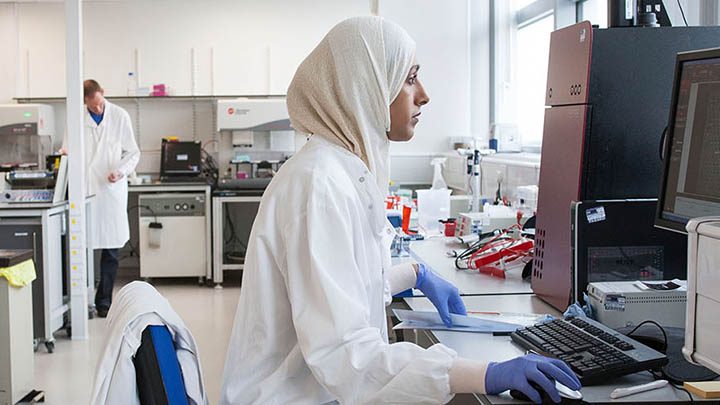
How long does it take?
You can study the Integrated PhD either full-time (4 years) or part-time (up to 8 years).

Our reputation
The University of Manchester is ranked 27th worldwide (QS Global World Rankings 2022) and is #1 for social and environmental impact (Times Higher Education). We have been the University of the Year for Graduate Employment (The Times and Sunday Times Good University Guide 2020).

An international community
Join over 7,000 of our international postgraduate students for a unique and exceptional learning experience.

How it works
Your training pathway.
Our Integrated PhD gives you the opportunity to study for an MSc that will prepare you for a related PhD project.
You'll spend the first part of the programme studying on your chosen master's course in biology, medicine and health before moving into one of our PhD programmes, working on research in the same area as your MSc.
Your PhD will be undertaken at Manchester under the supervision of researchers working on a variety of exciting projects. You'll draw on the skills and knowledge you learned at MSc level to contribute to crucial research.
Example pathway: from MSc Precision Medicine to PhD research in omics
Integrated PhD students undertaking our MSc in Precision Medicine would be well-equipped to undertake the 'Predicting response to IL6 inhibition in patients with rheumatoid arthritis' PhD project.
You would be able to apply your master's learning in the principles of stratified medicine to address an important clinical question: whether we can use omics to better target the right drugs to the right patients.
Your MSc-level training in omics technologies, such as genomics and transcriptomics, would be directly applicable to this PhD project.
View all example MSc and PhD pathways

Making an application
Apply for the integrated phd.
If you wish to be considered for the Integrated PhD programme and meet our eligibility criteria, you must complete an online application.
Application process for the Integrated PhD
Information on making an application can be found on the how to apply page.
You must make one separate application for this programme (select FBMH Integrated 1+3 Programme on the online application form). If you select the incorrect programme, your application cannot be considered.
Before applying, you should identify a supervisor for your PhD project. You can look at available projects on our database . Using the Research Explorer can also help identify potential supervisors and research areas.
We recommend you make direct contact with potential supervisors to discuss your application before applying, indicating you are interested in the Integrated PhD programme. Supervisors may also be able to suggest a relevant master's course to compliment your research interests.
You should review the master's courses on offer and ensure you meet the entry requirements before making an application for the Integrated PhD. Please note that some postgraduate taught courses are not included in the Integrated PhD. Please get in touch to see if the master's course you are interested in is included in this PhD programme.
On the online application form, you will need to include the name of your preferred supervisor/provisional project title. If you are unable to identify a supervisor, please contact the Admissions team for advice by emailing [email protected] .
Your supporting statement should be a maximum of 1,000 words summarising your motivation for the Integrated PhD, outlining any research experience and your career ambitions. You should also indicate which of our master's courses you would like to be considered for.
Other application information
Please refer to the individual MSc or MRes course page for details of application deadlines.
Eligibility
Applicants must have obtained, or be about to obtain, a First or Upper Second UK honours degree or the equivalent qualification gained outside the UK in a related subject area.
A Lower Second honours degree may be considered if applicants also hold a master's degree with a Merit classification, or the equivalent qualifications gained outside the UK.
Please refer to the individual MSc or MRes course page for detailed entry requirements.
As part of the selection process for the programme, you will be required to attend a short interview.
Have any questions? Get in touch.
Applications.
For queries regarding the application process, the projects on offer or your eligibility, please contact the Doctoral Academy.
Email: [email protected] Tel: +44 (0)161 275 5608
You may wish to contact supervisors directly about projects. You can find the name of the supervisor on each project, and their contact details in the University's online directory
University of Manchester intercalation queries should be sent to Professor Sue Atley and the intercalation team.
Cookies on our website
We use some essential cookies to make this website work.
We'd like to set additional cookies to understand how you use our site. And we'd like to serve you some cookies set by other services to show you relevant content.
Management Integrated PhD
Key information.

- 1st in the UK for annual research income in 2019-2022 (Chartered Association of Business Schools)
- 8th in the UK for citations in Business and Economics (The Times Higher Education World University Rankings 2023)
- 16th in the UK for Economics & Business (NTU Ranking 2022)
You’ll work with world-leading faculty whose findings go beyond academia – to practitioners and professionals in industry, associations, chartered institutes, decision-making bodies and public-policy organisations.
You’ll become a skilled research practitioner with a broad set of advanced skills to help you address global challenges. Your training on this integrated PhD will enable you to effectively engage with – and shape – socioeconomic policies. This includes areas such as innovation, entrepreneurship, inclusive trade, minimum wage, education and development.
What is an integrated PhD?
An integrated PhD includes taking Masters-level modules in your first year as preparation for PhD-level research.
The taught year will help develop your research skills, ready for your PhD. It covers:
- quantitative, qualitative and analytical methods
- empirical design
- programming.
Through the taught modules, you’ll gain a meaningful progression point and all the support you need for your PhD. Once you’ve successfully completed the taught element of the degree, you’re ready to progress to the research phase of your PhD including your research thesis.
During your PhD, you’ll continue to receive training. You’ll develop more advanced research and publishing skills including:
- winning grants
- stakeholder engagement .
The integrated PhD offers the depth rigour and focus of a PhD, while developing your research and employability skills.
Accreditation
You’ll join the EQUIS and AMBA-accredited University of Sussex Business School. Learn more about all of our course accreditations here. Find out more
Areas of study
Our research focuses on questions such as:
- what factors influence new product/service development?
- how do institutional and geographical factors influence enterprise development?
- how do we tackle gender and race discrimination?
- how can we motivate individuals and nurture leaders?
- what could be done to promote environmental sustainability across supply-chain networks?
Find out more about research at the University of Sussex Business School
We understand that deciding where and what to study is a very important decision. We’ll make all reasonable efforts to provide you with the courses, services and facilities described in this prospectus. However, if we need to make material changes, for example due to government or regulatory requirements, or unanticipated staff changes, we’ll let you know as soon as possible.
Masters and P h D events
Meet us on campus or online
Book your place
Entry requirements
- UK requirements
- International requirements
Please select your country from the list.
Philippines
Saudi arabia, south africa, south korea, switzerland, united arab emirates, my country is not listed.
If your country is not listed, you need to contact us and find out the qualification level you should have for this course. Contact us
English language requirements
Ielts (academic).
High level (6.5 overall, including at least 6.0 in each component).
IELTS scores are valid for two years from the test date. You cannot combine scores from more than one sitting of the test. Your score must be valid when you begin your Sussex course. Find out more about IELTS
We accept IELTS One Skills Retake.
We do not accept IELTS Online.
Check full details of our English Language requirements and find out more about some of the alternative English language qualifications listed below
Alternative English language qualifications
Proficiency tests, cambridge advanced certificate in english (cae).
169 overall, including at least 162 in each skill.
We would normally expect the CAE test to have been taken within two years before the start of your course.
You cannot combine scores from more than one sitting of the test. Find out more about Cambridge English: Advanced
Cambridge Certificate of Proficiency in English (CPE)
We would normally expect the CPE test to have been taken within two years before the start of your course.
You cannot combine scores from more than one sitting of the test. Find out more about Cambridge English: Proficiency
LanguageCert International ESOL SELT
High level (International ESOL SELT B2 with a minimum of 39 in each component)
LanguageCert International ESOL scores are valid for two years from the test date. Your score must be valid when you begin your Sussex course. Find out more about LanguageCert SELT
We only accept LanguageCert when taken at SELT Test Centres. We do not accept the online version.
Pearson PTE Academic
High level (62 overall, including at least 59 in all four skills)
PTE (Academic) scores are valid for two years from the test date. You cannot combine scores from more than one sitting of the test. Your score must be valid when you begin your Sussex course. Find out more about Pearson (PTE Academic)
We do not accept the PTE Academic Online test.
TOEFL (iBT)
High level 88 overall, including at least 20 Listening, 19 in Reading, 21 in Speaking, 23 in Writing.
TOEFL (iBT) scores are valid for two years from the test date. You cannot combine scores from more than one sitting of the test. Your score must be valid when you begin your Sussex course. Find out more about TOEFL (iBT)
We do not accept TOEFL (iBT) Home Edition.
The TOEFL Institution Code for the University of Sussex is 9166.
English language qualifications
As/a-level (gce).
Grade C or above in English Language.
Hong Kong Advanced Level Examination (HKALE)/ AS or A Level: grade C or above in Use of English.
GCE O-level
Grade C or above in English.
Brunei/Cambridge GCE O-level in English: grades 1-6.
Singapore/Cambridge GCE O-level in English: grades 1-6.
GCSE or IGCSE
Grade C or above in English as a First Language (Grade 4 or above in GCSE from 2017).
Grade B or above in English as a Second Language.
Ghana Senior Secondary School Certificate
If awarded before 1993: grades 1-6 in English language.
If awarded between 1993 and 2005: grades A-D in English language.
Hong Kong Diploma of Secondary Education (HKDSE)
Level 4, including at least 3 in each component in English Language.
Indian School Certificate (Standard XII)
The Indian School Certificate is accepted at the grades below when awarded by the following examination boards:
Central Board of Secondary Education (CBSE) – English Core only: 70%
Council for Indian School Certificate Examinations (CISCE) - English: 70%
International Baccalaureate Diploma (IB)
English A or English B at grade 5 or above.
Kenya Certificate of Secondary Education
Grades A - C in English language
Malaysian Certificate of Education (SPM) 1119/GCE O-level
If taken before the end of 2008: grades 1-6 in English Language.
If taken from 2009 onwards: grade C or above in English Language.
The qualification must be jointly awarded by the University of Cambridge Local Examinations Syndicate (UCLES).
West African Senior School Certificate
Grades A1-C6 (1-6) in English language when awarded by the West African Examinations Council (WAEC) or the National Examinations Council (NECO).
Country exceptions
Select to see the list of exempt english-speaking countries.
If you are a national of one of the countries below, or if you have recently completed a qualification equivalent to a UK Bachelors degree or higher in one of these countries, you will normally meet our English requirement. Note that qualifications obtained by distance learning or awarded by studying outside these countries cannot be accepted for English language purposes.
You will normally be expected to have completed the qualification within two years before starting your course at Sussex. If the qualification was obtained earlier than this, we would expect you to be able to demonstrate that you have maintained a good level of English, for example by living in an English-speaking country or working in an occupation that required you to use English regularly and to a high level.
Please note that this list is determined by the UK’s Home Office, not by the University of Sussex.
List of exempt countries:
- Antigua and Barbuda
- New Zealand
- St Kitts and Nevis
- St Vincent and the Grenadines
- The British Overseas Territories
- Trinidad and Tobago
- United Kingdom
** Canada: you must be a national of Canada; other nationals not on this list who have a degree from a Canadian institution will not normally be exempt from needing to provide evidence of English.
English language support
If you don’t meet the English language requirements for your degree, you may be able to take a pre-sessional course
- Visas and immigration
Admissions information for applicants
If your qualifications aren’t listed or you have a question about entry requirements, contact us
Core modules
Core modules are taken by all students on the course. They give you a solid grounding in your chosen subject and prepare you to explore the topics that interest you most.
Autumn teaching
- Analytical Methods
- Programming and Policy Analysis
- Qualitative Methods and Empirical Design
- Quantitative Methods
Spring and summer teaching
- Research Proposal
Alongside your core modules, you take the pathway modules below .
Spring teaching
- Advanced Qualitative Methods (Innovation, Management and Policy Pathway)
- Introduction to Theory ( Innovation, Management and Policy Pathway)
We regularly review our modules to incorporate student feedback, staff expertise, as well as the latest research and teaching methodology. We’re planning to run these modules in the academic year 2024/25. However, there may be changes to these modules in response to feedback, staff availability, student demand or updates to our curriculum. We’ll make sure to let you know of any material changes to modules at the earliest opportunity.
Check back in early 2024 for more details of the modules running in the academic year 2024/25.
- How to apply
If you’d like to join us as a research student, there are two main routes:
- browse funded projects in this subject area
- browse our potential supervisors and propose your own research project.
Find out how to apply for a PhD at Sussex
Full-time and part-time study
Choose to work on your research full time or part time, to fit around your work and personal life. For details about part-time study, contact us at [email protected]
Our supervisors
Explore our research interests and find potential supervisors.

Prof Vasiliki Bamiatzi
Professor of Strategy and International Business
View profile of Vasiliki Bamiatzi

Prof Sambit Bhattacharyya
Professor of Economics
View profile of Sambit Bhattacharyya
Prof Chirantan Chatterjee
Professor of Development Economics, Innovation and Global Health
View profile of Chirantan Chatterjee
Prof Gonul Colak
Professor of Accounting and Finance
View profile of Gonul Colak
Dr Massimo Contrafatto
Reader in Accounting
View profile of Massimo Contrafatto

Prof Andrew Davies
RM Phillips Freeman Chair in InnovationManagement
View profile of Andrew Davies

Prof Richard Dickens
View profile of Richard Dickens
Dr Pawel Dziewulski
Senior Lecturer in Economics
View profile of Pawel Dziewulski
Prof Catherine Liston-Heyes
Professor of Business and Government
View profile of Catherine Liston-Heyes

Dr George Mackerron
Senior Lecturer in The Economics of Environment, Energy & Climate Change
View profile of George Mackerron

Prof Stephan Manning
Professor of Strategy and Innovation
View profile of Stephan Manning

Dr Marianna Marra
Reader in International Business and Inn
View profile of Marianna Marra

Prof Constantin Blome
Visiting Professor
View profile of Constantin Blome
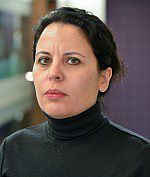
Prof Odul Bozkurt
Professor of Work and Employment
View profile of Odul Bozkurt

Dr Petros Chamakiotis
Visiting Senior Lecturer
View profile of Petros Chamakiotis

Dr Benjamin Everly
Senior Lecturer in Organisational Behaviour
View profile of Benjamin Everly
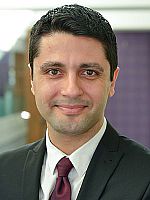
Dr Marv Khammash
Associate Faculty
View profile of Marv Khammash

Dr Michelle Luke
Reader in Organisational Behaviour
View profile of Michelle Luke

Dr Monica Masucci
Senior Lecturer in Strategy and Entrepreneurship
View profile of Monica Masucci

Prof Steven McGuire
Dean of Business School
View profile of Steven McGuire

Dr Piera Morlacchi
View profile of Piera Morlacchi

Prof Dimitra Petrakaki
Professor of Technology and Organisation
View profile of Dimitra Petrakaki

Dr Maria Restuccia
Lecturer In Marketing
View profile of Maria Restuccia

Prof Martin Schleper
View profile of Martin Schleper

Dr Natalia Slutskaya
Reader in Work and Organisation Studies
View profile of Natalia Slutskaya

Prof Chris Storey
Professor of Marketing
View profile of Chris Storey

Prof Roger Strange
Professor of International Business
View profile of Roger Strange

Dr Shova Thapa Karki
Senior Lecturer in Entrepreneurship and Sustainability
View profile of Shova Thapa Karki

Prof Dennis Tourish
Professor of Leadership and Organisation Studies
View profile of Dennis Tourish

Prof Mirela Xheneti
Professor of Entrepreneurship and Small Business
View profile of Mirela Xheneti

Dr Biao Yang
Senior Lecturer in Operations Management
View profile of Biao Yang
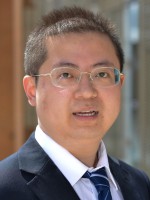
Dr Yong Yang
View profile of Yong Yang
Funding and fees
How can i fund my course, funded projects and scholarships.
Our aim is to ensure that every student who wants to study with us is able to despite financial barriers, so that we continue to attract talented and unique individuals. Don’t miss out on scholarships – check the specific application deadlines for funding opportunities. Note that funded projects aren’t available for all our PhDs.
Details of our scholarships are not yet set for entry in the academic year 2024/25.
Applying for USA Federal Student Aid?
If any part of your funding, at any time, is through USA federal Direct Loan funds, you will be registered on a separate version of this degree which does not include the possibility of distance learning which is prohibited under USA federal regulations. Find out more about American Student Loans and Federal Student Aid .
Part-time work
We advertise around 2,500 part-time jobs a year so you can make money and gain work experience. We have a special scheme to employ students on campus, wherever possible.
Find out more about careers and employability
How much does it cost?
Fees for self-funding students.
Home students: £4,786 per year for full-time students
Channel Islands and Isle of Man students: £4,786 per year for full-time students
International students: £21,500 per year for full-time students
Home PhD student fees are set at the level recommended by United Kingdom Research and Innovation (UKRI) annually, rising in line with inflation. Overseas fees are subject to an annual increase - see details on our tuition fees page
Additional costs
Note about additional costs.
Please note that all costs are best estimates based on current market values. Activities may be subject to unavoidable change in response to Government advice. We’ll let you know at the earliest opportunity. We review estimates every year and they may vary with inflation. Find out how to budget for student life .
Empirical research costs
On top of your PhD fees and living costs, you may also need to cover some research and training costs, relevant to your research project. These costs will depend on your research topic and training needs, but may include: - travel (to archives, collections or scientific facilities) - a laptop - overseas fieldwork costs (travel and accommodation, and language training) - conference costs (travel, registration fees and accommodation) - laboratory consumables and workshop materials - participant costs - transcription or translation costs - open-access publication costs. If you have a scholarship from one of the UK Research Councils, your scholarship should cover these types of costs. You'll receive details of how to claim this additional funding. If you're self funded, or if your scholarship doesn’t cover these costs, check with the Research and Enterprise Co-ordinator in your School for details of School or Doctoral School funding that may be available.
- Living costs
Find out typical living costs for studying at Sussex
Find out about our terms and conditions
Explore our campus
Experience Sussex life in our virtual tour.
Start your virtual tour
PhD Information Sessions
Visit campus and chat to staff and students. Book your place
Online PhD Sessions
Join a live webchat. Book your place
International
Meet us in your country
Course enquiries
+44 (0)1273 876787
Send us a message
Admissions enquiries
If you haven’t applied yet:
+44 (0)1273 678169 business-researchstudents@sussex.ac.uk
Find out about the University of Sussex Business School
After you’ve applied:
+44 (0)1273 877773 [email protected]
Find out how to apply
Quick links
- Guide to PhD study
- PhD support
- Academic facilities
- Open Days and events
- Accommodation
- International students
- Student life
- Order a printed prospectus
What do you want to do next?
- Courses Browse our courses by subject area
- Sussex Life Find out about life at Sussex
- Visit Come to a PhD Open Evening
- Apply Find out how to apply
- Staff intranet
- Student intranet

What do you want to do?
Brunel integrated phd.
The Brunel Integrated PhD combines PhD research with a programme of structured research, professional and subject training. The programme typically takes 4 years (compared to 3 years for a non-integrated PhD programme). On successful completion, you will be awarded a PhD with an Integrated Postgraduate Diploma in Research in your chosen subject specialisation.
Please Allow all cookies to view this video from YouTube. Alternatively view the content here
Benefits of undertaking the Integrated PhD
You will benefit from this programme immensely if you want to:
- receive a more much guided and hands-on supervision of your learning and research process, especially if you come from more traditional teaching cultures
- increase your chances for a timely completion of your PhD programme in comparison to students taking traditional route PhD, cutting down the expenses associated with prolonged study
- access to tailored, highly specialist research training not available as part of the support provided to traditional route PhD students
- maximise your chances for a successful research analysis by applying practical assignments and training which are part of the integrated PhD directly to the research you do for your thesis
- receive an official P ostgraduate Diploma in Research in addition to your PhD award to certify the completion of skills training which may be required by employers in some countries if you wish to pursue an academic career
The programme is suitable for all research students but especially for those from outside the UK who may need additional support to adapt to the UK educational system and those joining a PhD programme without a Masters degree or with a Masters degree which did not focus on developing research skills.
Contact our Enquiries team . Course Enquiries: +44 (0)1895 265599 (before you submit an application) Admissions Office: +44 (0)1895 265265 (after you submit an application)
Programme structure
The programme of taught modules runs in parallel to your research work during the first three years of study, with the fourth year providing time for you to focus on writing up your PhD thesis. The taught modules cover research and professional skills as well as providing discipline-specific content. The Brunel Integrated PhD aims to support an individual’s development as a research professional. It aims to produce researchers who are well prepared to embark on careers as academics or professional researchers. As well as the skills to conduct and disseminate high quality academic research, researchers will develop a range of broader (‘transferable’) skills to help ensure that their work has impact in the wider world.
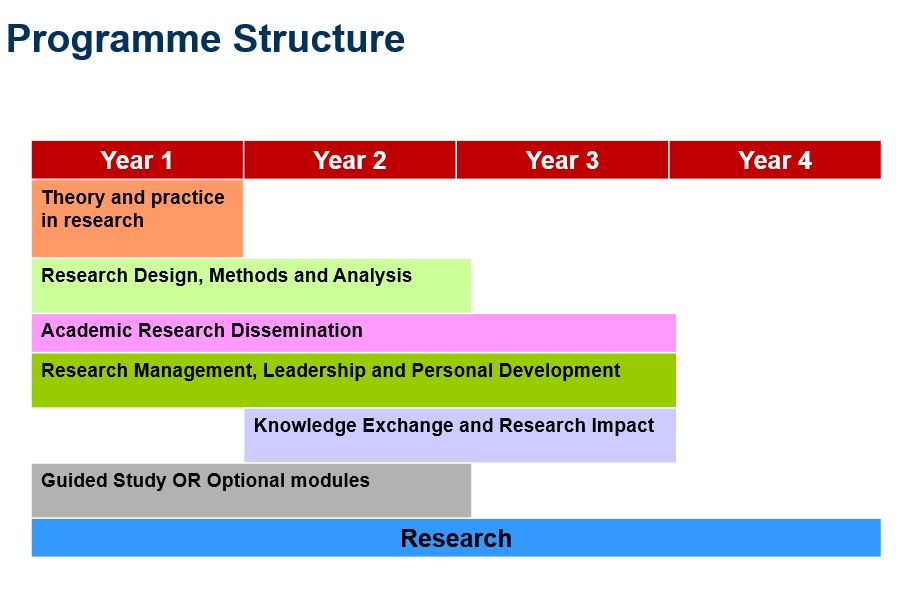
Find out more
- Advanced Manufacturing and Enterprise Engineering Integrated PhD
- Business and Management Integrated PhD (Brunel Business School)
- Chemical Engineering Integrated PhD
- Civil Engineering Integrated PhD
- Computer Science Integrated PhD
- Design Integrated PhD
- Economics Integrated PhD
- Electronic and Electrical Engineering Integrated PhD
- Health Sciences Integrated PhD
- Information Systems and Computing Integrated PhD
- Law Integrated PhD
- Life Sciences Integrated PhD
- Mathematical Sciences Integrated PhD
- Mechanical and Aerospace Integrated PhD
- Mechanical Engineering Integrated PhD
“The structure and high quality of the Integrated PhD programme has provided me with the opportunity to develop my research skills and to participate in advanced taught modules with experts and researchers in different research areas. Brunel University offered me a truly unique experience, combining the best education with an extensive programme of activities, a fantastic place for research and making friends”. Ali Tarhini is from Lebanon and has completed the Brunel Integrated PhD Programme in Information Systems and Computing.

Health Sciences Integrated PhD Program (HSIP)
The Health Sciences Integrated PhD Program offers cross-discipline training within the health sciences, spanning from informatics and program evaluation to implementation science and outcomes research.
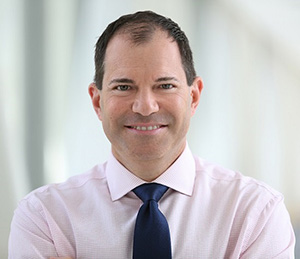
Our program provides a strong academic foundation for students to focus on and excel in research that addresses processes and methodologies in clinical and population sciences.”
Neil Jordan, PhD HSIP Director
Students in this PhD program have the opportunity to choose a study track: Health & Biomedical Informatics, Health Services & Outcomes Research, Healthcare Quality & Patient Safety and Social Sciences & Health.
Program Length: 4 years
Program Size: Up to 6 students per year
Tuition: All students in good standing are offered full tuition coverage, a stipend and paid coverage in the Northwestern University student health service and insurance plan.
Visit Program Site Apply
Eligibility and Program Requirements
Integrated Masters with PhD – Explained
Published 16 October, 2023
The traditional path to becoming a researcher or professor at a university generally involves completing an undergraduate degree, followed by a Master’s and then a PhD. However, some institutions offer the opportunity to complete all three of these levels of study in one go – this is known as an integrated Masters with PhD.The main advantage of completing an integrated Masters with PhD is that it saves time.
Introduction
Have you ever thought about continuing your studies to PhD level, but didn’t know how to go about it? Well, have we got the programme for you! An Integrated Masters with PhD (iPhD) is the perfect way to ease yourself into postgraduate research.
You’ll start off by completing a one-year Masters course, which will introduce you to your chosen topic and give you a taste of what research is all about. You’ll then move on to a three-year PhD programme, during which you’ll conduct your own independent research project.
The iPhD is particularly popular with international students and students who initially lack specialised knowledge or research skills. So if you’re looking for a challenge and want to take your studies to the next level, an iPhD could be for you!
What does an Integrated PhD means?
Pursuing a postgraduate degree can be a big commitment, and it can be tough to decide which route to take. For many students, an Integrated PhD is the perfect option. This four-year programme combines a one-year Masters degree with a three-year PhD, giving you the chance to complete two degrees in less time than it would take to pursue them separately.
Not only will you save time, but you’ll also have the opportunity to deepen your knowledge and hone your research skills. And because you’ll already have a Masters degree when you finish, you’ll be well-positioned to pursue a career in academia or research. If you’re looking for a challenge and want to make the most of your postgraduate studies, an Integrated PhD could be the perfect fit.
The Integrated PhD, which is offered by a few select universities, is an innovative and demanding course that allows students to complete both a Masters and a PhD in just four years. Although the courses run back-to-back, a student can only progress to the second year if they show satisfactory performance in their first year.
The one-year Masters and the three-year PhD are considered separately in terms of qualifications; therefore, a student who completes an Integrated PhD will receive both a Masters degree (MRes or MSc) and a PhD as opposed to a single postgraduate qualification. The Integrated PhD is an excellent option for highly motivated and ambitious students who are looking to fast-track their careers in academia or research.
The terms ‘Integrated Master’s with PhD’, and ‘integrated masters’ all refer to the same research degree. Although these may be used interchangeably in some cases we will henceforth refer them as “Integrated PhD” out of respect for clarity’s sake.
For whom Integrated PhD is suitable?
An Integrated PhD is suitable for a variety of students. If you’re an international student, an Integrated PhD can be a great way to transition into the UK education system. The one-year Masters degree will give you a chance to settle in and get used to the UK university experience before embarking on your three-year PhD research project.
The Integrated PhD is for students who meet the eligibility requirements but do not have the necessary background to be considered as a normal-route applicant. It generally consists of 3 types of students:
- Students with a good Bachelor’s degree (which is not normally sufficient to be considered for a PhD) in the relevant subject area. Such students may have had their application for a ‘normal-route’ PhD rejected but may be given the opportunity to take an Integrated PhD instead.
- The student has a Masters degree in an unrelated field, but they want to pursue doctoral studies and become part of the profession that is more closely aligned with their desired discipline.
- Although the student has a relevant Masters degree, the program was not focused on research, leaving him or her with little expertise.
Whether you’re an international student, a lack of UG research experience or simply looking to deepen your knowledge, an Integrated PhD could be the right choice for you.
Advantages of an Integrated PhD
- Integrated PhD programmes provide students with an opportunity to gain in-depth knowledge and research skills in a specific field prior starting of doctorate.
- An integrated PhD provides you with a more holistic training as it combines different fields of study. This can give you a better understanding of how different parts of a system interact with one another, and can equip you with the skills needed to tackle complex problems.
- It also helps you to develop interdisciplinary research skills, which are becoming increasingly important in today’s world. With an integrated PhD, you will be able to work across different fields and come up with innovative solutions to problems that require a multidisciplinary approach.
- It can also help you to build a strong network of connections with researchers from different disciplines. This can be extremely valuable when it comes time to look for jobs or funding opportunities.
- Integrated PhD programmes are also often more flexible than traditional PhD programmes, which can be beneficial for students who have other commitments such as work or family.
- Finally, an integrated PhD can lead to a more prestigious job and a higher salary than a traditional PhD.
Disadvantages of an Integrated PhD
- The main disadvantage of an integrated PhD is that it can be more challenging than a traditional PhD. This is because you will be expected to complete a Masters degree before embarking on your doctoral studies, which means that you will have to juggle two sets of coursework and examinations.
- An integrated PhD can also be more expensive than a traditional PhD, as you will have to pay for two sets of tuition fees.
- It can also be difficult to transfer credits from a Masters degree into a PhD programme, which means that you may not be able to get full credit for your previous studies.
- Finally, an integrated PhD may not be recognised by some employers or academic institutions, which can limit your career options.
All about Integrated PhD Programme
The programme of study is a dual structure, with Masters and PhD programs equally divided into two parts.
During your first year, you will take a series of compulsory and optional modules totalling 180 credits. In your second, third and fourth years, you will complete your PhD research project and write up your thesis (worth a further 360 credits).
Taught modules:
Subject-specific module: Students will attend lectures, seminars and practical classes as part of their chosen discipline. These modules will give them an in-depth understanding of the subject area and prepare them for their research project.
Transferable skills module: All students will be required to take a transferable skills module, which will teach them the essential skills needed for success in their chosen field.
English and Communication: Students will also be required to take an English and Communication module, which will help them to improve their writing and presentation skills.
Research Techniques: In addition, all students will be required to take a research techniques module, which will teach them the methods and techniques needed to carry out their research project.
Research proposal development: All students will be required to develop a research proposal as part of their application for the programme.
Research Modules:
All students will be required to complete a research project as part of their programme. This project can be either experimental or theoretical and will be carried out under the supervision of a member of staff.
When you apply to do your masters, one of the things they check is if have knowledge and skills that would be useful for doing doctoral studies. This means going through an interview with someone who can vouch whether or not it’ll work out well in terms research ability because there are certain traits only found after completing doctorates.
Your journey to becoming a Doctor could not have been smoother. The application process was simple and stress-free, you met all of the requirements needed for enrollment in your desired PhD program without any problems whatsoever–and now it’s time that you get started.
During your doctoral phase, you will be required to conduct independent research and laboratory work for two years. This is followed by a final year of writing up findings in order formally submitting them as thesis (in some countries). Your expertise on this subject matter will then undergo assessment through an oral examination knowns as a “viva voce”, in order to ensure that your research is of sound quality and meets international academic standards.
Eligibility criteria for Integrated PhD
To be eligible for the integrated masters degree in UK, one must meet all relevant qualifications and requirements. The typical requirement is an Upper Second Class (2:1) honours Bachelor’s degree with at least good upper second class result or international equivalents such as MSc(management).
International students might need to take an English language proficiency exam, like IELTS or TOEFL. You can check with each university whether they accept these certificates but the most common requirement is for those who have achieved at least 6 points on their overall scorecard– Enough To Gain admission!
Cost of Integrated PhD
The cost for an Integrated PhD in the UK can be as much £4,407 per academic year if you’re a home/EU student or £2k plus when studying abroad. This amount may change based on how many credit hours are required per semester but it’s typically cheaper to take classes part-time instead of full-time because there is no additional fee associated with taking fewer credits each term unlike undergraduate degrees where graduate tuitions vary by country according do their level in the European Union.
The tuition fees for an Integrated PhD can be divided into two rates: one that is charged during the masters phase and another which applies to students completing their doctorates. Most universities have similar arrangements, thus making it easy enough if you’re looking at four year programs or more without having too many different prices available per discipline; however there are some exceptions such as Durham University who charges differently depending on whether your course lasts three years ( taught postgraduate ) .
You should keep this difference in mind when comparing programs across institutions because while integrating research may seem like a plus point – especially given how costly some PhDs can be – it’s not always going to be the most budget-friendly choice overall.
You should budget for the expenses that come with studying abroad. These might include fees related to lab work, travel costs if you’re collaborating with anyone else at your institution or write-up hours needed by students who want more time on their dissertations before they submit them to academia.
Funding Opportunities
Integrated PhDs are the same as regular PhDs in terms of financing. Funding for Integrated PhDs is usually provided by one of the UK Research Councils or research charity organizations like the Wellcome Trust; grants, scholarships, and funded opportunities may be found right here in our searchable database.
Funding for your education is hard to come by. That’s why it pays off in the long run that you research all potential providers and determine which one will provide what kind of funding, as well as how much they offer per semester or year (full tuition fees plus living costs). The good news? Many PhD programs integrate with master’s degree programs so if this fits within their scope then there should be no problem getting covered again.
Difference Between Integrated PhD and Regular PhD
It really depends on your goals as to which degree is right for you. If you know you want to pursue a career in academia, then an Integrated PhD may be the better choice. But if you’re not sure what you want to do with your degree, or if you want more flexibility in your studies, then a regular PhD may be a better fit.
Make sure to speak with your potential supervisors and mentors about which degree would be more beneficial for you and your goals.
Stuck During Your Dissertation
Our top dissertation writing experts are waiting 24/7 to assist you with your university project,from critical literature reviews to a complete PhD dissertation.
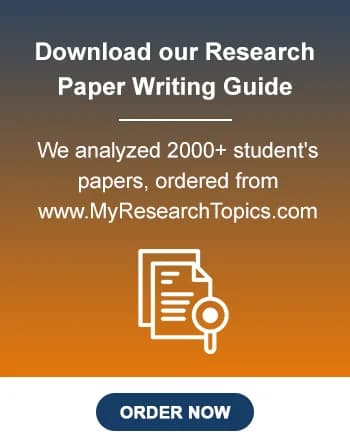
Other Related Guides
- Research Project Questions
- Types of Validity in Research – Explained With Examples
- Schizophrenia Sample Research Paper
- Quantitative Research Methods – Definitive Guide
- Research Paper On Homelessness For College Students
- How to Study for Biology Final Examination
- Textual Analysis in Research / Methods of Analyzing Text
A Guide to Start Research Process – Introduction, Procedure and Tips
Research findings – objectives , importance and techniques.
- Topic Sentences in Research Paper – Meaning, Parts, Importance, Procedure and Techniques

Recent Research Guides for 2023

Get 15% off your first order with My Research Topics
Connect with a professional writer within minutes by placing your first order. No matter the subject, difficulty, academic level or document type, our writers have the skills to complete it.

My Research Topics is provides assistance since 2004 to Research Students Globally. We help PhD, Psyd, MD, Mphil, Undergrad, High school, College, Masters students to compete their research paper & Dissertations. Our Step by step mentorship helps students to understand the research paper making process.
Research Topics & Ideas
- Sociological Research Paper Topics & Ideas For Students 2023
- Nurses Research Paper Topics & Ideas 2023
- Nursing Capstone Project Research Topics & Ideas 2023
- Unique Research Paper Topics & Ideas For Students 2023
- Teaching Research Paper Topics & Ideas 2023
- Literary Research Paper Topics & Ideas 2023
- Nursing Ethics Research Topics & Ideas 2023
Research Guide
Disclaimer: The Reference papers provided by the Myresearchtopics.com serve as model and sample papers for students and are not to be submitted as it is. These papers are intended to be used for reference and research purposes only.
- Current Students
- News & Press
- Research Excellence
- Teaching & Student Experience
- Graduate Employability
- UK Rankings
- World Rankings
- Single Topic Rankings
- Research Excellence Framework
- Higher Education Awards
- Ageing and Health
- Cities and Place
- Culture and Creative Arts
- Social Justice
- Discover Festival
- Faculty of Science, Agriculture & Engineering
- Faculty of Humanities & Social Sciences
- Faculty of Medical Sciences
- Central and South Asia
- Latin America
- Middle East and North Africa
- North America
- Small Island Developing States
- South East Asia and Oceania
- Sub-Saharan Africa
- Transparency
- Office for Students Transparency Data
- Access & Participation
- Support for our Community
- UN Sustainable Development Goals
- https://www.ncl.ac.uk/who-we-are/equality/race-equality/black-history-month/
- Faith, Religion & Belief
- Lesbian, Gay, Bisexual & Transgender
- Let Us Know
- Workplace Adjustments
- Useful Resources
- Equality Analysis
- Social Justice Stories
- Voluntary & Community Groups
- Santander Universities
- Regional Partnerships
- Widening Participation
- Newcastle Helix
- Art on Campus
- History of Newcastle University
- Find a Degree
- Subject Areas
- Step-by-Step Guide for UK Students
- Step-by-Step Guide for International & EU Students
- Applying through UCAS
- A and AS Levels
- Application Decisions
- Access Schemes & Pathway Programmes
- Policies & Procedures
- Applicants with Disabilities
- Mature Applicants
- Deferred Entry
- Undergraduate Application Advice
- Subject Scholarships
- Sports Scholarships
- Opportunity Scholarships
- VC's Excellence Scholarships
- VC's Global Scholarships
- VC's International Scholarships
- International Foundation Scholarships
- St Nicholas’ Educational Trust Scholarship
- NU Sanctuary Scholarships
- Undergraduate Norway Scholarship
- International Family Discounts
- VC’s EU Scholarships – Undergraduate
- VC's Excellence Scholarships - Europe
- VC's Business Excellence Scholarships - Europe
- Cowrie Foundation Scholarship
- Edward Long Scholarship
- Alumni Discount
- Different Tuition Fees
- Additional Costs
- Student Loans
- International Student Finance
- Sign up & Discover
- School and College Outreach
- Information for Parents and Supporters
- Why Choose Newcastle?
- Your Study Options
- Qualifications Explained
- Postgraduate Research Programmes
- Search for Funding
- Guide to Funding
- Postgraduate Tuition Fees
- Application Help
- Advice & Resources
- Your Offer Guide
- Postgraduate Open Days
- Postgraduate Virtual Open Day
- Doctoral College
- Distance Learning
- Continuing Professional Development (CPD)
- Study Support
- Campus Tours
- Life in Newcastle
- Get Involved
- Cost of Living
- Health & Wellbeing
- Mature Students
- Childcare Support
- Care Leavers
- Asylum Seekers
- Teaching & Learning
- Student Blog - Belong
- Types of Rooms
- Accessibility and Individual Requirements
- Castle Leazes
- Bedrooms we offer
- Accommodation Guides
- New Student Guarantee
- Advanced Booking
- Submit an Application
- Part Year Student Accommodation
- What Happens Next?
- Safety and Security
- Returning Next Year
- Extending Your Stay
- Room Changes
- Parking & Bicycle Storage
- Post and Parcels
- Guest Visitors and Going Away
- Energy & Recycling
- ResLife Find a Flatmate
- Your ResLife Team
- Student Support
- Payment Methods
- Payment Schedules
- Managed Partnerships
- Rent Adjustments
- Student Village Receptions
- Your Accommodation Team
- Report a Fault
- Feedback and Complaints
- Internet Connection
- Work Placements
- About the Careers Service
- Careers Service News
- Careers Service Events
- Work for Yourself
- Career Planning
- Careers Modules
- Making Applications
- Interviews, Tests & Assessment Centres
- Internships, Placements & Shadowing
- Finding Jobs
- Handling Job Offers
- Researching Employers
- Making Contacts
- Further Study
- Awards, Competitions & Project Funding
- Volunteering
- Boost Your CV
- Defence Technical Undergraduate Scheme (DTUS)
- Getting Here
- Self-Guided Campus Tours
- Undergraduate Offer Holder Days
- Postgraduate Schools & Supervisors
- Undergraduate Open Days
- Tier 4 Visa from Inside UK
- Tier 4 Visa from Outside UK
- Short-Term Visa from Outside UK
- International Study Blog
- Our Pathway Courses
- English Language Courses
- Fees, Costs and Scholarships
- INTO Newcastle University
- Student Exchange and Study Abroad
- Request a Prospectus
- Chat to a Student
- Your Academic Experience
- Research Impact
- Research Strengths
- Centres of Research Excellence
- Research Culture Action Plan
- Working Together on Research Culture
- Policy Notes
- Global Partnerships
- Let's Work Together
- Sustainable Water
- Food Security
- Sustainable Livelihoods
- Global Impact
- Research Excellence Framework (REF) 2021
- Code of Good Practice in Research
- University Research Committee
- Animal Research Policy
- Declaration on Openness on Animal Research
- Animal Procedures
- Helping Human Health
- Animal Research News
- Ethics at Newcastle
- Research Data and Open Access
- Research Strategy & Development
- Policy and Information Team
- Grants & Contracts (HaSS and SAgE)
- NJRO (inc Grants & Contracts FMS)
- Research Funding Development
- Biomedical Facilities
- Chemistry Facilities
- Clinical Facilities
- Engineering Facilities
- Marine & Agricultural Facilities
- More Facilities
- Facilities A to Z
- Research Funding
- Research News
- Case Studies
- CPD Courses
- Collaborative Research
- Company Creation
- Consultancy
- Corporate Partnerships
- DA Power Engineering
- DA MSc Digital Technology Solutions
- DA Executive Education Snr. Leader Apprenticeships
- Facilities and Equipment
- Intensive Industrial Innovation Programme
- Knowledge Transfer Partnerships
- Technology Transfer and Licensing
- Clinical Trials & Research
- Working with Newcastle
- Tender Opportunities
- Submitting an Invoice
- Sustainable Procurement
- Code of Conduct & Policies
- Meet the Team
- Health & Social Challenges
- Creative Collaborations
- Connect with alumni
- Develop your career
- Discover lifelong learning opportunities
- Support future generations
Computer Science Integrated PhD
Our Computer Science Integrated PhD combines taught master's computer science modules with research.
You are currently viewing course information for entry year:
Start date(s):
- September 2024

This Integrated PhD in Computer Science provides an opportunity to make a unique contribution to computer science research. You'll work within a research group, guided by experts and supported by a team of advisers.
Our Computer Science Integrated PhD (IPhD) allows you to match your studies with your interests. You can choose from a wide range of modules and select your own focus for your final project.
Our computer science research
Based in the School of Computing , our research reflects our strengths, capabilities and critical mass. Research supervision is available under our seven research areas.
The AMBER group aims to equip systems and software engineering practitioners with effective methods and tools for developing the most demanding computer systems. We do this by means of models with well-founded semantics.
Open Lab is the leading academic research centre for human-computer interaction (HCI) and ubiquitous computing (Ubicomp) research outside of the USA. It conducts research across a wide range of fundamental topics in HCI and Ubicomp, including:
- interaction design methods, techniques and technologies
- mobile, social and wearable computing
- computational behaviour analysis
ICOS carries out research at the interface of computing science and complex biological systems. We seek to create the next generation of algorithms that provide innovative solutions to problems arising in natural or synthetic systems. We use our interdisciplinary expertise in machine intelligence, complex systems and computational biology.
The Scalable Systems group creates the enabling technology we need to deliver tomorrow's large-scale services. This includes work on:
- scalable cloud computing
- big data analytics
- distributed algorithms
- stochastic modelling
- performance analysis
- video game technologies
- green computing
The Secure and Resilient Systems group investigates fundamental concepts, development techniques, models, architectures and mechanisms that directly contribute to creating dependable and secure information systems, networks and infrastructures. We aim to target real-world challenges to the dependability and security of the next generation:
- information systems
- cyber-physical systems
- critical infrastructures
The Educational Practice in Computing group focusses on encouraging, fostering and pursuing innovation in teaching computing science. Through this group, your research will focus on pedagogy. You'll apply your research to maximise the impact of innovative teaching practices, programmes and curricula in the School. Examples of innovation work within the group include:
- teacher training and the national Computing at School initiative
- outreach activities including visits to schools and hosting visits by schools
- participation in national fora for teaching innovation
The NUSE group provides quality of life improvements in the digital age. They address challenges in systems engineering for real-world applications. This includes autonomous transportation, green energy, online safety, big data analysis and digital health.
Their core research strengths include:
- cloud/edge computing and big data management
- Internet-of-things (IoT) and cyber resilience
- edge intelligence
- knowledge representation and reasoning
- health data management
- real-time simulations
- video game engineering
Research excellence
The excellence of our research has been recognised through awards of large research grants. Three recent examples are:
- Centre for Doctoral Training in Cloud Computing for Big Data . Funded by Engineering and Physical Sciences Research Council (EPSRC)
- Centre for Doctoral Training in Digital Civics. Funded by Engineering and Physical Sciences Research Council (EPSRC)
- A £10m project to look at novel treatment for epilepsy. Funded by the Wellcome Trust and Engineering and Physical Sciences Research Council (EPSRC) Research Grant
Important information
We've highlighted important information about your course. Please take note of any deadlines.
Please rest assured we make all reasonable efforts to provide you with the programmes, services and facilities described. However, it may be necessary to make changes due to significant disruption, for example in response to Covid-19.
View our Academic experience page , which gives information about your Newcastle University study experience for the academic year 2023-24.
See our terms and conditions and student complaints information , which gives details of circumstances that may lead to changes to programmes, modules or University services.
Related courses
Qualifications explained.
Find out about the different qualification options for this course.
(only use this component if course has more than one qualification option)
Each IPhD contains a significant and tailored taught component, assessed annually, and culminates with a research project written up as a thesis.
The taught component is the main difference between the IPhD and a standard PhD programme.
Find out about different types of postgraduate qualifications
What you'll learn
The IPhD combines taught master's level modules with research. As an IPhD student, you'll initially study alongside students on one of our computer science master's.
You can choose from one of the following:
- Advanced Computer Science MSc
- Bioinformatics MSc
- Cloud Computing MSc
- Computer Game Engineering MSc
- Cyber Security MSc
- Data Science MSc
- Data Science and AI MSc
- Data Science (with specialisation in Statistics) MSc
- Data Science with Visualisation MSc
- Human-Computer Interaction MSc
Additionally, you'll take the 30-credit short project module Project and Dissertation for MCOMP . The project topic should match the specialisation.
You will study modules on this course. A module is a unit of a course with its own approved aims and outcomes and assessment methods.
Module information is intended to provide an example of what you will study.
Our teaching is informed by research. Course content changes periodically to reflect developments in the discipline, the requirements of external bodies and partners, and student feedback.
Full details of the modules on offer will be published through the Programme Regulations and Specifications ahead of each academic year. This usually happens in May.
To find out more please see our terms and conditions .
Optional modules availability
Some courses have optional modules. Student demand for optional modules may affect availability.
How you'll learn
As this is an integrated PhD you'll complete taught modules and receive support from our doctoral training centres, Faculty Training Programme and Research Student Support Team.
Your first research year will be spent identifying a hypothesis and developing an approach to answer it.
You'll also take short courses on research skills, innovation, personal and career development. The study skills you gain will help you manage your research project. You'll receive training in:
- presentations
- interviewing
- technical skills
- teaching skills
Once your supervisor has approved your research topic you can conduct your research.
Depending on your modules, you'll be assessed through a combination of:
- Computer assessment
- Design or creative project
- Dissertation
- Professional skills assessments
- Oral examination
- Oral presentation
- Practical lab report
- Problem-solving exercises
- Reflective log
- Written exercise
Your assessment includes:
- a written thesis
- an oral examination called a viva
At your viva you'll discuss your research with two examiners. This includes a leading researcher from outside Newcastle University.
All our staff will work to support you in your studies, from admissions to graduation and your career beyond.
To get the most out of your study experience, we'll encourage you to take part in a variety of activities. This includes taking part in seminars delivered by distinguished external speakers.
Our mission is to help you:
- stay healthy, positive and feeling well
- overcome any challenges you may face during your degree – academic or personal
- get the most out of your postgraduate research experience
- carry out admin and activities essential to progressing through your degree
- understand postgraduate research processes, standards and rules
We can offer you tailored wellbeing support, courses and activities.
You can also access a broad range of workshops covering:
- research and professional skills
- careers support
- health and safety
- public engagement
- academic development
Our teaching staff have international reputations, including some with extensive experience as practitioners.
Your development
Faculty of science, agriculture and engineering (sage) researcher development programme .
Each faculty offers a researcher development programme for its postgraduate research students. We have designed your programme to help you:
- perform better as a researcher
- boost your career prospects
- broaden your impact
Through workshops and activities, it will build your transferable skills and increase your confidence.
You’ll cover:
- techniques for effective research
- methods for better collaborative working
- essential professional standards and requirements
Your programme is flexible. You can adapt it to meet your changing needs as you progress through your doctorate.
Find out more about the SAgE researcher development programme
Your future
Members of our industry advisory group help to ensure that the programme is relevant to the needs of business and industry today. There are opportunities to choose a project for your final dissertation that has some industry involvement associated with it.
Our Careers Service
Our award-winning Careers Service is one of the largest and best in the country, and we have strong links with employers. We provide an extensive range of opportunities to all students through our ncl+ initiative.
Visit our Careers Service website
Quality and ranking
All professional accreditations are reviewed regularly by their professional body
From 1 January 2021 there is an update to the way professional qualifications are recognised by countries outside of the UK
Check the government’s website for more information .
The School of Computing is based in the £58million Urban Sciences Building, a flagship development located on the £350m Newcastle Helix regeneration site in the heart of Newcastle. It brings together:
- the public sector
- communities
- business and industry
Fees and funding
Tuition fees for 2024 entry (per year), home fees for research degree students.
For 2024-25 entry, we will be aligning our standard Home research fees with those set by UK Research and Innovation (UKRI) . The standard fee will be confirmed in Spring 2024 by UKRI. The Home tuition fees for this course will be updated after this confirmation.
If your studies last longer than one year, your tuition fee may increase in line with inflation.
Depending on your residency history, if you’re a student from the EU, other EEA or a Swiss national, with settled or pre-settled status under the EU Settlement Scheme, you’ll normally pay the ‘Home’ tuition fee rate and may be eligible for Student Finance England support.
EU students without settled or pre-settled status will normally be charged fees at the ‘International’ rate and will not be eligible for Student Finance England support.
If you are unsure of your fee status, check out the latest guidance here .
Scholarships
We support our EU and international students by providing a generous range of Vice-Chancellor's automatic and merit-based scholarships. See our searchable postgraduate funding page for more information.
What you're paying for
Tuition fees include the costs of:
- matriculation
- registration
- tuition (or supervision)
- library access
- examination
- re-examination
Find out more about:
- living costs
- tuition fees
If you are an international student or a student from the EU, EEA or Switzerland and you need a visa to study in the UK, you may have to pay a deposit.
You can check this in the How to apply section .
If you're applying for funding, always check the funding application deadline. This deadline may be earlier than the application deadline for your course.
For some funding schemes, you need to have received an offer of a place on a course before you can apply for the funding.
Search for funding
Find funding available for your course
Entry requirements
The entrance requirements below apply to 2024 entry.
Qualifications from outside the UK
English language requirements, admissions policy.
This policy applies to all undergraduate and postgraduate admissions at Newcastle University. It is intended to provide information about our admissions policies and procedures to applicants and potential applicants, to their advisors and family members, and to staff of the University.
Download our admissions policy (PDF: 201KB) Other policies related to admissions
Credit transfer and Recognition of Prior Learning
Recognition of Prior Learning (RPL) can allow you to convert existing relevant university-level knowledge, skills and experience into credits towards a qualification. Find out more about the RPL policy which may apply to this course
- How to apply
Using the application portal
The application portal has instructions to guide you through your application. It will tell you what documents you need and how to upload them.
You can choose to start your application, save your details and come back to complete it later.
If you’re ready, you can select Apply Online and you’ll be taken directly to the application portal.
Alternatively you can find out more about applying on our applications and offers pages .
Open days and events
You'll have a number of opportunities to meet us throughout the year including:
- campus tours
- on-campus open days
- virtual open days
Find out about how you can visit Newcastle in person and virtually
Overseas events
We regularly travel overseas to meet with students interested in studying at Newcastle University.
Visit our events calendar for the latest events
- Get in touch
Questions about this course?
If you have specific questions about this course you can contact:
Admissions Secretary School of Computing Telephone: +44 (0) 191 208 2736 Email: [email protected]
For more general enquiries you could also complete our online enquiry form.
Fill in our enquiry form
Our Ncl chatbot might be able to give you an answer straight away. If not, it’ll direct you to someone who can help.
You'll find our Ncl chatbot in the bottom right of this page.
Keep updated
We regularly send email updates and extra information about the University.
Receive regular updates by email
Chat to a student
Chat online with current students with our Unibuddy platform.
- What You'll Learn
- How You'll Learn
- Your Development
- Your Future
- Quality and Ranking
- Fees and Funding
- Entry Requirements
- Open days & events
Course code J42
Doctor of philosophy (integrated), toggle between study options for domestic or international students.
- Domestic students
- International students
About this Course
The Doctor of Philosophy (Integrated) is a research degree commencing with a cohort-based foundation year of research preparation followed by an independent, supervised research project.
The subjects covered in the first year support the development of the research project and include generic research training and discipline-specific units. These provide you with strategies for a successful research journey, appropriate research design and methodology, timely completion, and effective writing and communication skills. You must achieve an overall weighted average mark (WAM) of 70% in the first year of research preparation in order to continue into the thesis component of the course. A PhD(I) may be undertaken in a variety of areas within ECU, provided there are supervisors available in your proposed research area, and the resources and facilities required to complete your proposed project are accessible. ECU encourages interdisciplinary research that may span multiple research fields and Schools. We encourage you to view the Research Activity pages of the School websites for ECU’s areas of research focus.
Australian Qualifications Framework (AQF) level
This course has been accredited by ECU as an AQF Level 10 Doctoral Degree Award.
Entry requirements
ECU admission and English language requirements apply.
See Course Entry for further information.
ECU admission profile
The Australian Government's Research Training Program provides tuition fee offsets for domestic students who are enrolled in Higher Degree by Research courses.
See Fees and Scholarships for further information.
4 years full-time or part-time equivalent
See Course Details for further information.
Availability & Campus
Location & timetable.
This course requires attendance at more than one campus or location. The course also has a modified timetable. See Course Notes .
CRICOS code 085717D
International students - estimated 1st year indicative fee AUD $40,450
Course Entry
Admission requirements you'll need to meet for this course.
The following course-specific admission requirements are mandatory and must be satisfied by all applicants. These requirements are in addition to or supersede the minimum requirements outlined within the Academic admission requirements band section below.
All applicants are required to hold a Master by Coursework in a related field. Alternatively applicants can hold an Honours degree, or the equivalent in a relevant field from a recognised University, Applicants seeking online study will be required to provide additional information to support their application, as not all projects nor disciplines are suited to online study.
Academic admission requirements (Band 10) may be satisfied through completion of one of the following:
- Masters Degree (Research);
- Masters Degree (Coursework) in a related discipline area;
- Masters Degree (Coursework) with 2/3 research component; or
- Bachelor Honours Degree.
English competency requirements may be satisfied through completion of one of the following:
- IELTS Academic Overall band minimum score of 6.5 (no individual band less than 6.0);
- Bachelor degree from a country specified on the English Proficiency Bands page ;
- Successfully completed 0.375 EFTSL of study at postgraduate level or higher at an Australian higher education provider (or equivalent);
- Where accepted, equivalent prior learning, including at least five years relevant professional experience; or
- Other tests, courses or programs defined on the English Proficiency Bands page .
English Language Requirements for Nursing and Midwifery: International students (other than those students schooled in a recognised country as defined by APHRA at http://www.ahpra.gov.au/Registration/Registration-Standards/English-language-skills.aspx ) are required to provide any English language test approved by AHPRA with a score equivalent to an IELTS Academic overall minimum score of 7.0 (no individual band less than 7.0). Internationally schooled applicants may also be required to meet this requirement or we may require additional information to confirm that requirements have been satisfied.
Course Details
Semester availability.
Semester 1: Study full-time at Joondalup, Mount Lawley, South West or Online
Semester 1: Study part-time at Joondalup, Mount Lawley, South West or Online
Semester 2: Study full-time at Joondalup, Mount Lawley, South West or Online
Semester 2: Study part-time at Joondalup, Mount Lawley, South West or Online
Course Structure
Students must achieve an overall weighted average mark (WAM) of 70% in the first year of coursework in order to continue to the thesis component of the course.
^ Core Option
For more detailed unit information for this course take a look at our Handbook . To organise your life for next semester visit the Teaching timetable .
PhD Unit Sets you can study in this course
- Communication, Media Studies and Journalism
- Computer Science
- Counselling
- Criminology
- Cyber Security
- Environmental Studies
- Exercise and Sports Science
- Mathematics
- Medical Science
- Nursing and Midwifery
- Nutrition and Dietetics
- Occupational Therapy
- Paramedical Science
- Performing Arts
- Politics and Government
- Public Health
- Security Science
- Social Science
- Speech Pathology
- Visual Arts and Design
Course notes
Important course notes.
Students may be required to attend classes on more than one campus to complete the course.
Students are expected to meet regularly with their supervisors as part of the supervised independent research component of the course.
Course learning outcomes
- Take responsibility and show initiative for designing and executing original research, demonstrating capacity to generate new knowledge with intellectual independence.
- Integrate substantial and systemic understanding of complex discipline knowledge with research principles and methods to demonstrate expertise in the field.
- Apply communication skills to explain and critique theoretical propositions, methodologies and conclusions, and cogently present findings of a complex and original investigation to peers and the broader community.
- Use expert skills and authoritative judgement to adapt and implement research methodologies and conduct systematic and independent investigation of theory and/or practice at the frontier of a discipline.
Semester 1: Study part-time Online
Semester 2: Study part-time Online
Fees and Scholarships
If you're a domestic student enrolled in a Higher Degree by Research program, you won't be required to pay tuition fees. The Australian Government provides domestic students with tuition fee offsets under the Research Training Program (RTP) for up to 4 years full-time (or equivalent) for Doctoral studies.
The RTP covers your tuition fees only. You will still be required to pay all other non-tuition fees applicable to your course, such as the Student Services and Amenities Fee. Some units require the payment of a fee for incidental goods or services required to complete those units. For more information and the full list of incidental fees for courses and units, visit What are Incidental Fees .
Scholarships
ECU has a scholarship program that provides many opportunities each year to students undertaking studies here.
Career Opportunities
Throughout your PhD, you will be supported to develop high-level research and professional skills such as project design and execution, problem identification, definition and solving, critical thinking and analysis, data management, utilising research methods and methodologies, teamwork, negotiation and networking, high-level technical skills in your field, and communicating to different audiences. With the majority of PhD graduates now pursuing careers outside academia, the skills and research training embedded in the PhD prime you to move into a variety of sectors and roles, including management, consulting, commercial R&D, research management, entrepreneurship, public policy, government, finance, technical services, biotech, education, and project coordination/management.
Similar courses to consider
- Master of Education (Advanced)
- Master of Education
- Master of Cyber Security
- Master of Occupational Hygiene and Toxicology
- Master of Occupational Health and Safety
- Master of Business Administration International Students interested in completing a Master of Business Administration International, specialising in Human Resource Management, Information Systems, International Business, Marketing or Project Management, should consider the Master of Business Administration International.
- Master of Project Management Students interested in completing a Masters By Coursework in Project Management should consider the Master of Project Management.
- Master of Professional Accounting Students interested in completing a Masters By Coursework in Accounting should consider the Master of Professional Accounting.
- Master of Marketing and Innovation Management Students interested in completing a Masters By Coursework in Marketing and Innovation Management should consider the Master of Marketing and Innovation Management.
- Master of Management Information Systems Students interested in completing a Masters By Coursework in Management Information Systems should consider the Master of Management Information Systems.
- Master of International Hospitality Management Students interested in completing a Masters By Coursework in International Hospitality Management, specialising in Human Resource Management, Marketing, Project Management, Information Systems and international Business, should consider the Master of International Hospitality Management.
- Master of Human Resource Management Students interested in completing a Masters By Coursework in Human Resource Management should consider the Master of Human Resource Management.
- Master of Finance and Banking Students interested in completing a Masters By Coursework in Finance & Banking should consider the Master of Finance and Banking.
- Master of Engineering Students interested in completing a Masters By Coursework specialising in Civil Engineering, Computer Systems Engineering, Electrical Power Engineering, Electronics and Communications Engineering, Instrumentation, Control and Automation Engineering, Mechanical Engineering, or Mechatronics Engineering, should consider the Master of Engineering.
- Master of Public Health Students interested in completing a Masters By Coursework in Public Health should consider the Master of Public Health.
- Master of Cyber Security Students interested in completing a Masters By Coursework in Cyber Security should consider the Master of Cyber Security.
- Master of Computer Science Students interested in completing a Masters By Coursework in Computer Science should consider the Master of Computer Science.
- Master of Counselling and Psychotherapy Students interested in completing a Masters By Coursework in Counselling & Psychotherapy should consider the Master of Counselling and Psychotherapy.
- AUD $40,450 - International students estimated 1st year indicative fee 1
1 The 'estimated 1st year indicative fee' is provided as a guide only, and has been calculated based on a typical enrolment of students undertaking the first year of this course. At ECU, you pay for each individual unit you enrol in, not an overall course fee, so the total cost of your course will vary, depending on what units you choose. An indicative fee will be provided with your course offer, however you can use our Course Fee Calculator to estimate the actual amount you'll need to pay. ECU fees are adjusted annually.
Some units require the payment of a fee for incidental goods or services required to complete those units. For more information and the full list of incidental fees for courses and units, visit What are Incidental Fees .
Need some help deciding what to study?
Our future student events include a mix of on-campus and online sessions designed to help you decide what to study at ECU.
Creative thinkers start here
Quick guide to uni-speak.
The Australian Qualifications Framework (AQF) is the national regulator of qualifications in the Australian education and training system. The AQF defines the essential characteristics, including the required learning outcomes, of the different types of qualifications issued across the higher education systems in Australia.
ATAR is the Australian Tertiary Admission Rank, the primary criterion for entry into most undergraduate university courses in Australia. The ATAR is a percentile score which denotes a student's ranking relative to their state-wide peers upon completion of their secondary education.
CRICOS is the Commonwealth Register of Institutions and Courses for Overseas Students. A CRICOS code is allocated to education institutions (like ECU) who are approved to recruit, enrol and deliver education to overseas students. Courses with a CRICOS code are available to international students who meet the entry requirements.
A major, or unit set, is your chosen area of in-depth study in an undergraduate course. It usually involves 8 units of study, or one-third of the units in a 3-year degree. Talk to your Student Information Office if you need help choosing a major subject.
Minors include between 4 and 6 study units in a specific discipline. Not all courses require you to complete a minor. Your minor subject doesn't appear on your printed degree (parchment), but is part of your academic transcript.
If you're enrolled in 3 or more units in a semester this is considered full-time study. To complete most 3-year degrees studying full-time you'll need to complete 4 units per semester, i.e. 24 units over 3 years.
If a course is available to study part-time you can generally expect it to take twice as long to complete as it would in full-time mode. Part-time students are enrolled in 1 or 2 units maximum per semester.
Note: International students who hold a student visa can only choose the full-time study option for our courses. This is to ensure the course is completed within the duration of the student visa.
Most courses start in Semester 1 each year, usually in the last week of February. Some courses can be started in Semester 2 (we call this mid-year). There's a week of Orientation before each semester to help you get used to uni life.
A lot of our courses start in Semester 2 each year, usually in the last week of July. We call this mid-year. There's a week of Orientation beforehand to help you get used to uni life.
We use a points system to make it easier for you to understand your study progress. Most Bachelors degree study units are allocated 15 credit points. If you're studying a 3-year full-time degree you'll need to successfully complete 360 credit points - that's 24 units x 15 points per unit.
These are compulsory units you have to successfully complete as part of your course.
An elective is a unit you choose to study that counts towards your course requirements, but isn't compulsory. For some courses we recommend elective units. In some situations, a course coordinator may approve an elective unit as a replacement for a compulsory one.
Do you have any questions about the Doctor of Philosophy (Integrated)?
The important things.
Things you should know about if you're thinking about studying here.
There's more than one admission pathway into an ECU course. It depends on what you've studied already, or your work or life experience.
Fees & Scholarships
Course tuition fees can change, but we can give you an estimate of your costs. If you're eligible, a scholarship or student loan can help too.
Applying for a course is a fairly simple process, especially if you have scanned copies of qualifications, your resume or other paperwork, ready to upload.
ECU Experience
Starting a course is an exciting and sometimes daunting time, so we make a massive effort to ensure you get all the support you need to have a positive experience.

What is Integrated PhD Programs?
The integrated PhD programs are dedicatedly designed to reduce the time of the entire PhD which covers a master’s course in the 5 year PhD coursework.
PhDs are so popular in recent times the reason is people love to educate themself and learn new things. But because of many limitations, not all students can get into it.
For instance, the regular PhD seats are limited, Government employees can’t get into the full-time PhD course, the funded PhD options are not available for all. Therefore universities manufactured PhD structures based on the requirement of students.
Some can do it full time, rest can do it part-time.
Employees can do it with their job and other can do it without job, with a fellowship.
Integrated PhD programs are also a type of PhD dedicatedly designed for a group of students who want to complete it as soon as possible in a legit way.
In the present piece of article, I will explain to you the structure of the iPhD or integrated PhD, what are the requirements of it and how to get it. Before that you can read this article also,
Related article: How long does it take to get a PhD?
What is an integrated PhD?
The integrated PhDs are programs that include the study module of master’s, coursework and PhD research in one single 5-year degree. The candidate needs to submit a thesis at the end of the fifth year of the degree.
The traditional way to get into PhD is after master’s or master’s, MPhil and PhD.
PhD takes 4 to 5 years and a huge amount of money to complete. Therefore by following the traditional way one has to invest more money and time (2+1+5 years) to get the PhD degree. While in the integrated PhD, they can save both!
Though the integrated PhDs have different marks and criteria to fulfil. There is a separate evaluation process, examinations and research modules must have completed every year.
The typical integrated PhD comprises modules of;
- General subjects related to the course and subject specific interdisciplinary topics.
- Coursework- research methodology, technical training and research skills.
- Core research modules of 3 years.
Much like other master’s, prospective students of integrated PhD has to study the topics related to their subject for at least one year and also have to pass the examinations with “good grades” .
After that technical part of the degree along with coursework will start. Coursework teaches various research methodologies in which in the end, everyone needs to clear the coursework examination.
After that, the supervisor evaluates the progress of candidates and closely monitor his or her potential to do recherche for the next 3 years. The PhD tenure starts after completing the coursework.
In any situation, if the prospective candidate fails to clear any modules, they can’t go ahead in the degree. Also, if they fail to show progress, they have to leave the integrated program midway.
Requirements:
As the integrated PhD is the combiantion of two degree, only undergraduate degree with good grades are need to get into. The graduations must be obtained from the reputed university.
Also the candidate has to show their research skill to survive and do research throughout the neture.
How to award the degree?
The degree is specially designed in three parts as we discussed. The candidate must have to clear the examination, the coursework and submit a thesis to appear in the PhD viva. Every integrated PhD students must have to defend their thesis at the terminal.
Intermediate exit award:
The criteria for the integrated PhD are tougher to complete. It doesn’t mean that if you fail, you have to leave. The university award the intermediate diploma or master’s degree award to the student who leaves midway.
There are two cases to give the intermediate award, first, the student doesn’t want to go ahead in the PhD (due to some reason), and second, the supervisor thinks that the student is not capable of doing the recherche for the next three year.
In both the cases, the intermediate degree is awarded.
Benefits of integrated PhD:
The integrated PhD programs are more beneficial to the students whose goal is to complete the degree as soon as possible. Traditionally it takes 6 to 7 years from master’s to PhD while in integrated PhD, it takes only 5 years- 2 for masters and coursework and 3 years for PhD.
Thus it saves time for students.
It also saves money too. In the traditional way, the student has to pay fees for master’s (2 years) and MPhil and also have to pay expenses of the MPhil research.
As both the degrees as integrated into one, students need to pay fees for only the whole integrated course. It is actually economically beneficial.
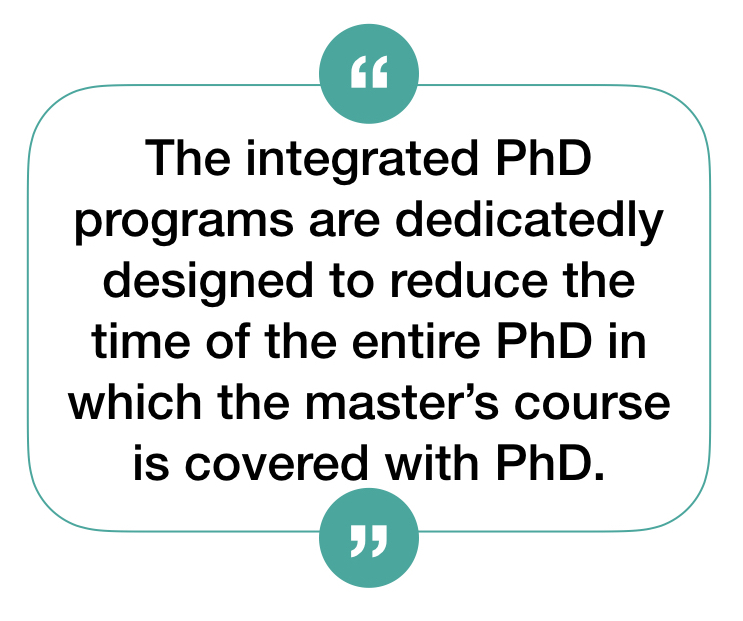
Drawbacks of integrated PhD:
Everything has drawbacks and so the integrated PhD is!
Though it saves times, the criteria are tougher to fulfil. Also, the whole tenure are full of examinations and evaluation process. The goal is to save time, students needs to complete their study, coursework and research- all things at once. So it becomes more troublesome for the undergraduate students to multi task all.
Also the final decision will be on the PhD supervisor , if they think you can’t do it, you have to leave.
However, the values of an integrated PhD are equal to the regular one. But not all the courses provide the present degree. It is available for some selected courses.
Conclusion:
The integrated courses are as valuable as the regular ones. After completing the degree, prospective students can compete with regular PhD students for getting the job. They also get higher salaries as well.
The integrated PhDs are majorly available in science and technology subjects. Some universities prefer common entrance examination for enrolling in the present degree.
Some FAQs:
The integrated PhD is the combination of masters and PhD as one degree designed to save time. Students need to learn the main subjects, coursework and to do research.
Any undergraduate can apply for the integrated PhD but keep in mind that they can only apply to their stream only.
It takes 5 years to complete the integrated PhD.
No, both are equal, however, the flexibilities in the traditional PhD programs are more.
Usually bachelor’s degree is required to enrol into the integrated PhD.
A candidate needs to clear the examinations of main courses, the coursework as well as to write the thesis, publish a research article and defend a thesis at the end.

Dr. Tushar Chauhan is a Scientist, Blogger and Scientific-writer. He has completed PhD in Genetics. Dr. Chauhan is a PhD coach and tutor.
Share this:

- Share on Facebook
- Share on Twitter
- Share on Pinterest
- Share on Linkedin
- Share via Email
About The Author

Dr Tushar Chauhan
Related posts.
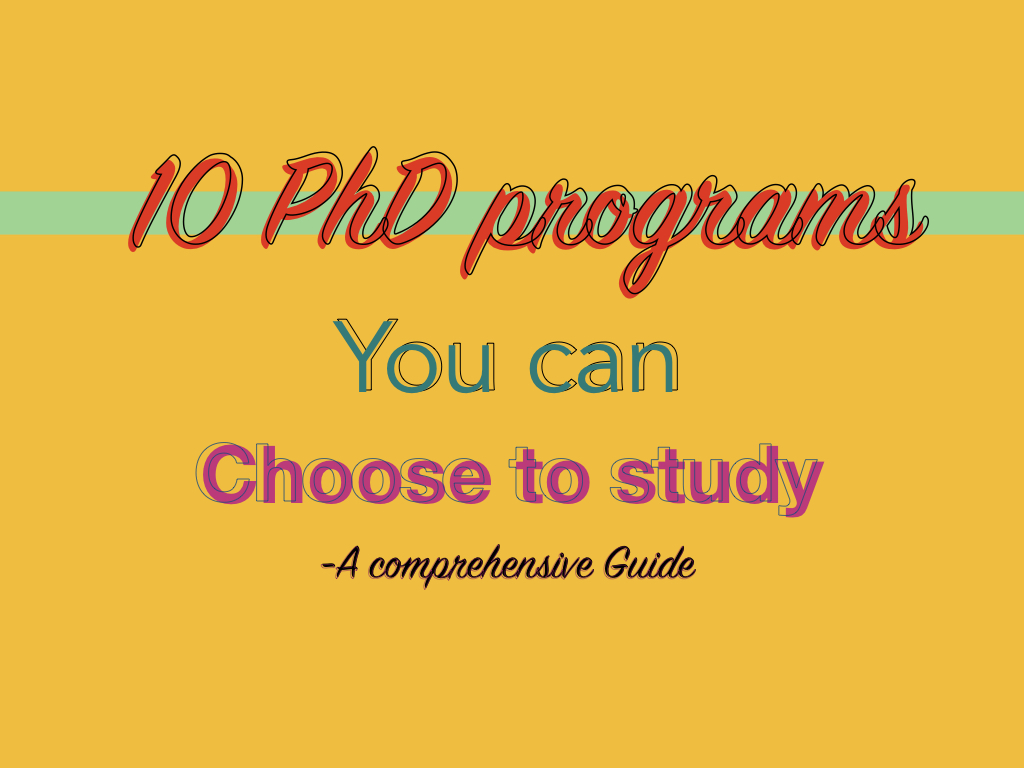
10 PhD Programs You can choose to Study- A Comprehensive Guide
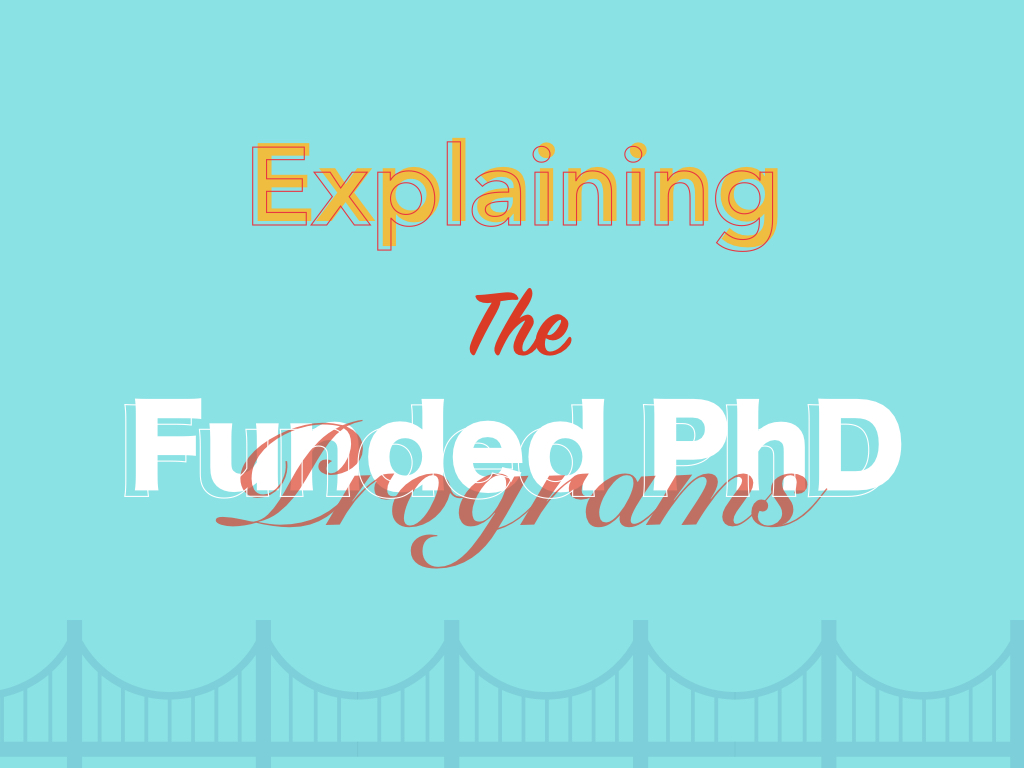
Explaining Funded PhD Programs
Leave a comment cancel reply.
Your email address will not be published. Required fields are marked *
Save my name, email, and website in this browser for the next time I comment.
Notify me of follow-up comments by email.
Notify me of new posts by email.
- English Language Programs
- Postdoctoral Affairs
- Training Grant Support
- Request Information
THE GRADUATE SCHOOL
- Academic Programs
- Explore Programs
Health Sciences Integrated Program
Degree requirements.
Learn more about the program by visiting the Health Sciences Integrated PhD Program
See related Interdisciplinary Clusters and Certificates
Degree Types: PhD
The Health Sciences Integrated Program (HSIP) offers doctoral student training in multiple disciplines within the health sciences. PhD students can choose to focus studies on:
- Health and Biomedical Informatics
- Health Services and Outcomes Research
- Healthcare Quality and Patient Safety
- Social Sciences and Health
- Biostatistics
The PhD program builds upon existing master's degree programs in these fields and incorporates new areas of strength in measurement and health behavior. Doctoral students receive rigorous interdisciplinary training in the core content needed for population health research in the 21st century.
Each student develops an individualized course of study that draws on the broad and deep resources found in The Graduate School and the Feinberg School of Medicine. HSIP provides a strong academic foundation for students to excel in research that addresses processes and methodologies in the clinical and population sciences.
The ultimate goal of the program is to produce graduates who will be leaders in population health science with the ability to connect approaches and methods from multiple disciplines.
Additional resources:
- Department website
- Program handbook(s)
Program Statistics
Visit PhD Program Statistics for statistics such as program admissions, enrollment, student demographics and more.
Program Contact
Contact Erica Ramos Program Assistant 312-503-5533
The following requirements are in addition to, or further elaborate upon, those requirements outlined in The Graduate School Policy Guide .
The Health Sciences Integrated Program requires:
- Coursework (see track-specific requirements below).
- Two written Qualifying Exams and an oral defense.
- Teaching experience.
- Written Dissertation Proposal and an oral defense.
- Doctoral Dissertation and an oral defense.
Health and Biomedical Informatics Track
Informatics is the study of information: how you collect it, how you organize it, and how you use it to solve problems. Health and Biomedical Informatics is informatics applied to healthcare and biomedical research. This track contains many different sub-fields that use similar techniques and tools but apply them to different problem areas.
Total Units Required: 13 or 13.5
The requirement for a grant writing course my also be fulfilled by taking DGP 496-3 Introduction to Life Science Research in the Summer quarter for zero credit.
Other electives may be taken with adviser approval.
Health Services and Outcomes Research Track
This track covers a multidisciplinary field of scientific investigation that studies how social factors, financing systems, organizational structures and processes, health technologies, and personal behaviors affect access to health care, the quality and cost of health care, and ultimately our health and well-being. Its research domains are individuals, families, organizations, institutions, communities, and populations.
Total Units Required: 14.5
Other electives may be taken with adviser approval.
Healthcare Quality and Patient Safety Track
This track focuses on the knowledge, skills, and methods required for improving healthcare delivery systems in regard to quality and safety. The topics covered include: healthcare quality context and measurement, changing systems of care delivery, healthcare disparities, accountability and public policy, safety interventions and practices, health information technology, simulation and the sciences of teamwork, human factors, risk assessment methods, and leadership and governance.
Total Units Required: 13
Independent study or other approved elective.
Social Sciences and Health Track
The educational mission of this track is to prepare its graduates for scholarly and research careers in patient centered outcomes, their mechanisms, and intervention applications via training at the scientific interface of biomedical and social sciences. Particular emphasis is placed on measurement of quality of life, behavioral and functional outcomes, applications that improve quality of life, health and health care at the individual and systems levels, as well as the developmental mechanisms that shape these outcomes across the lifespan. The overarching goal of this track is to train scientists who are experts in a particular area of patient-centered outcomes research (e.g. outcomes sciences, developmental mechanisms, behavior and health), while also developing proficiency in multiple areas of relevance to leading an innovative team.
Other courses to fulfill the ethics requirement may be taken with adviser approval.
Last Updated: September 12, 2023

Guidance from our top admission experts — for free!

- Admit Finder
Discover Past Admits, Gauge Your Chances!
- Shortlist Builder
Personalized University Picks, Just a Click Away.
- Course Finder
Navigate Global Courses Tailored for You
- Scholarship Finder
Unlock Funding Opportunities Worldwide.

Get tailored study abroad advice.

Sign in for exclusive content!

Planning to study abroad?

Build your target shortlist and see your odds of getting into top schools with Ambitio's AI shortlist builder!

Heading Out Already?
Our Ivy League mentors and top admission experts can help with personalized tips to get you into your dream school
3 July 2023
9 minutes read
Integrated PhD Program in the USA: A Comprehensive Guide
Key Takeaways:
- Integrated MS Ph.D. programs provide a direct path to earning both Master’s and Doctoral degrees, focusing on early research involvement.
- Admission requirements typically include a bachelor’s degree, strong academic records, recommendations, a purpose statement, and standardized test scores.
- Programs feature a blend of coursework and research, culminating in a dissertation.
- Benefits include shorter completion time, seamless transition to research, and enhanced career prospects.
- Funding options like assistantships, fellowships, and grants are essential for financial support.
Worried about the cost of Studying Abroad?
Sign up to access 25 game-changing scholarships that could cover your costs.

- Introduction
In recent years, there has been a growing trend among students to pursue an integrated MS Ph.D. program. This program offers the unique opportunity to combine a Master’s degree with a Doctorate, providing a seamless path to advanced academic and research pursuits.
If you’re considering studying in the USA and want to explore the possibilities of an integrated MS Ph.D. program, this article is here to guide you through the process.
From entry requirements to funding options, we will cover all the essential aspects of pursuing an integrated MS Ph.D. program in the USA.
Stuck on How to Pick Your Ideal College?
Sign up to access your tailored shortlist and simplify finding your ideal college.

- What is an Integrated MS Ph.D Program?

An integrated MS Ph.D. program is a combined degree program that allows students to earn both a Master’s and a Doctoral degree in a specific field of study.
Unlike traditional programs where students complete their Master’s degree first and then apply for a separate Ph.D. program, an integrated program streamlines the process by integrating the two degrees into a single curriculum.
This approach offers several advantages to students, such as early exposure to advanced research and a more efficient progression toward a doctoral degree.
Integrated MS Ph.D. programs have gained popularity in the USA due to the flexibility and comprehensive learning they provide.
These programs are designed to bridge the gap between advanced coursework and independent research, allowing students to develop a strong foundation in their field while also conducting in-depth research.
Quick Tip: Begin your program research and application preparations early.
Entry Requirements for an Integrated MS PhD Program
To be eligible for an integrated MS Ph.D. program in the USA, students must meet certain entry requirements. While specific requirements may vary between universities and programs, common prerequisites include:
- Applicants must have a bachelor’s degree or its equivalent from an accredited institution in a relevant field related to their intended area of study.
- Admission is highly competitive, and universities seek candidates with exceptional academic performance and a strong potential for research.
- Applicants must submit strong letters of recommendation from professors or professionals who can assess their academic abilities and potential for research.
- A well-written statement of purpose is required, outlining research interests and career goals, and demonstrating the applicant’s motivation and fit for the integrated MS Ph.D. program .
- Many programs require applicants to submit scores from standardized tests, assessing verbal reasoning, quantitative reasoning, and analytical writing skills.
- International students must demonstrate proficiency in the English language through standardized tests like TOEFL or IELTS .
- Some programs may consider prior work or research experience as an additional factor in the admissions process.
It is important to note that entry requirements may vary between universities and programs. It is advisable to check the specific requirements of each institution you are interested in applying to.
See how Successful Applications Look Like!
Access 350K+ profiles of students who got in. See what you can improve in your own application!

- Structure of an Integrated MS Ph.D. Program
Integrated MS Ph.D. programs typically span a longer duration compared to traditional Ph.D. programs. The structure varies depending on the university and discipline, but a common framework includes the following:
- Core courses that provide a comprehensive understanding of the subject, building a solid foundation in the chosen field of study. These courses cover essential knowledge and skills relevant to the discipline.
- Courses that allow students to focus on their specific research interests and develop expertise in specialized areas within their field of study. These courses are more advanced and tailored to the student’s research goals.
- Involves original research under the guidance of a faculty advisor. Students engage in research projects aligned with their interests, contributing to the existing body of knowledge in their field. Develop critical thinking and analytical skills.
- Assessments that evaluate students’ knowledge and research competency. These exams may be oral or written and cover foundational and specialized coursework.
- Requires independent research and the writing of a dissertation that contributes to the existing knowledge in the field. Students analyze data, draw conclusions, and present their research findings in a comprehensive written document.
- Presentation and defense of the dissertation in front of a committee of faculty members. Involves a question-and-answer session to assess students’ understanding and ability to defend their research findings.
Benefits of Pursuing an Integrated MS Ph.D. Program
Opting for an integrated MS Ph.D. program offers several benefits to students:
- By combining the two degrees, students save time compared to pursuing them separately. An integrated program allows students to complete both degrees in a shorter timeframe compared to the sequential pursuit of a Master’s degree followed by a Ph.D.
- Integrated programs provide a smooth transition from coursework to research, allowing students to start their research journey early. This early exposure to research and integration of coursework with research activities enhances the learning experience and helps students develop a deep understanding of their chosen field.
- Integrated programs offer a comprehensive understanding of the subject, both at the Masters and Doctoral levels. Students acquire a strong foundation in the field through coursework and further deepen their knowledge through research activities. This interdisciplinary knowledge equips graduates to tackle complex problems and make significant contributions to their field of study.
- Integrated programs provide students with early exposure to cutting-edge research and equip them with the skills necessary to conduct independent research. Through research projects, students have the opportunity to work closely with faculty mentors, collaborate with peers, and contribute to ongoing research in their field. This research experience plays a crucial role in shaping students into independent researchers and scholars.
- Graduates of integrated programs often possess a competitive edge in the job market, as they have acquired advanced knowledge and research skills. Employers value the interdisciplinary expertise, research experience, and ability to work on complex problems that integrated MS Ph.D. graduates bring to the table. Integrated MS PhD programs prepare students for careers in academia, research institutes, industry, and other professional settings.
Funding Opportunities for Integrated MS Ph.D. Programs
Funding is a crucial aspect to consider when pursuing an integrated MS Ph.D. program. Financing your education and research can be accomplished through various funding options, including:
- Graduate Assistantships : Many universities offer graduate assistantship positions to integrated MS PhD students. These positions provide a stipend and, in some cases, a tuition waiver in exchange for teaching or research assistance. Graduate assistants may assist faculty members in teaching undergraduate courses, conducting research, or working on other academic projects.
- Fellowships and Scholarships : Universities and external organizations offer fellowships and scholarships to support talented students pursuing integrated MS Ph.D. programs. These awards are often based on academic merit, research potential, or specific criteria related to the field of study. Fellowships and scholarships may cover tuition expenses, provide a living stipend, or both.
- Research Grants : Integrated MS Ph.D. students have the opportunity to apply for research grants to fund their research projects. These grants can be obtained from funding agencies, government bodies, private foundations, or industry sponsors. Research grants provide financial support for conducting research, data collection, equipment purchase, travel expenses, and other research-related costs.
- Work-Study Programs : Some students opt for work-study programs to fund their education while gaining practical experience in their field. Work-study programs provide part-time employment opportunities on campus or in affiliated organizations. These positions allow students to earn a paycheck while balancing their academic and research responsibilities.
When applying for an integrated MS Ph.D. program, it is important to research the funding opportunities available at each university. The financial support options may vary between institutions, and it is advisable to explore all available options to secure funding for your education and research.
Quick Tip: Network with potential advisors and current students for insights and a stronger application.

Start Your University Applications with Ambitio Pro!
Get Ambitio Pro!
Begin your journey to top universities with Ambitio Pro. Our premium platform offers you tools and support needed to craft standout applications.
Unlock Advanced Features for a More Comprehensive Application Experience!

Start your Journey today
- How to Apply for an Integrated MS PhD Program

The application process for an integrated MS Ph.D. program generally involves the following steps:
- Identify universities and programs that offer integrated MS Ph.D. programs in your field of interest. Consider factors such as the faculty expertise, research opportunities, funding options, and the overall reputation of the university.
- Carefully review the admission criteria and make sure you meet all the prerequisites. Pay attention to the required academic qualifications, standardized test scores, English language proficiency, and any additional requirements specific to the program.
- Gather all the required documents, including transcripts, test scores, letters of recommendation , and a well-crafted statement of purpose. Your statement of purpose should clearly articulate your research interests, career aspirations, and why you are interested in pursuing an integrated MS Ph.D. program at the respective university.
- Submit your applications online through the university’s admission portal or any designated platform. Ensure that all the required documents are submitted within the specified deadlines. Pay attention to any additional application requirements, such as writing samples or interviews.
- If shortlisted, you may be invited for an interview as part of the selection process. The interview may be conducted in person, over the phone, or through video conferencing. Prepare for the interview by familiarizing yourself with your research interests, the faculty’s research, and potential research collaborations.
- Once accepted, carefully evaluate your options and choose the program that aligns with your academic and career goals. Consider factors such as faculty expertise, research opportunities, funding packages, and the overall fit of the program with your research interests. Complete the enrollment formalities to secure your seat in the program.
The application process may vary slightly between universities and programs. It is important to consult the program’s official website or contact the admissions office for detailed information about the application process and deadlines.
- Difference Between Integrated MS Ph.D. and Regular Ph.D. Programs
Integrated MS Ph.D. programs differ from regular Ph.D. programs in several ways:
It is important to consider these differences when choosing between an integrated MS Ph.D. program and a regular Ph.D. program. The choice should align with your academic and career goals, research interests, and desired depth of study in your field.
- Top Universities in the USA Offering Integrated MS Ph.D. Programs

Several esteemed universities in the USA offer integrated MS Ph.D. programs across various disciplines. Here are some of the top universities known for their integrated programs:
These universities have a strong reputation for their research programs and offer integrated MS Ph.D. programs in a wide range of disciplines.
It is advisable to explore the specific programs offered by each university and consider factors such as faculty expertise, research opportunities, and available funding.
If you aspire to pursue advanced academic and research opportunities, an integrated MS Ph.D. program in the USA can be an excellent choice.
It offers a structured pathway to obtain both a Master’s and a Doctoral degree, enabling you to delve deeper into your chosen field of study.
By understanding the entry requirements, program structure, funding options, and the differences between integrated MS Ph.D. and regular Ph.D. programs, you’ll be well-prepared to embark on your journey toward an integrated MS Ph.D. program .
Explore the universities offering such programs, connect with potential advisors, and take the necessary steps to submit a compelling application. Your integrated MS Ph.D. experience awaits!
Your College Application, Our Expertise: Transform your college application with expert insights. Book your session and let our mentor provide you with personalized strategies for success.
Can I apply for an integrated MS Ph.D. program if I already have a Master’s degree?
Yes, many universities accept applicants with existing Master’s degrees for their integrated MS Ph.D. programs. Having a Master’s degree may provide you with a competitive advantage in the admissions process, as it demonstrates your ability to handle advanced coursework and research.
Do I need to contact potential advisors before applying to an integrated MS Ph.D. program?
While it’s not mandatory, reaching out to potential advisors can help you establish a connection and gain insights into their research interests. Connecting with potential advisors can also provide you with valuable guidance on the program and enhance your chances of being admitted.
What is the difference between an integrated MS Ph.D. program and a joint degree program?
Integrated MS Ph.D. programs combine coursework and research for a seamless progression toward a Doctoral degree. The Master’s and Doctoral degrees are obtained sequentially within a single program.
Joint degree programs, on the other hand, involve pursuing two separate degrees simultaneously, often in different disciplines. Joint degree programs allow students to earn both degrees independently, and the coursework and research requirements are designed accordingly.
Spread the Word!
Share across your social media if you found it helpful

Table of Contents
- • Introduction
- • What is an Integrated MS Ph.D Program?
- • Structure of an Integrated MS Ph.D. Program
- • How to Apply for an Integrated MS PhD Program
- • Difference Between Integrated MS Ph.D. and Regular Ph.D. Programs
- • Top Universities in the USA Offering Integrated MS Ph.D. Programs
- • Conclusion
Build your profile to get into top colleges
Phone Number
What level are you targetting
Almost there!
Just enter your OTP, and your planner will be on its way!
Code sent on
Resend OTP (30s)

Your Handbook Is Waiting on WhatsApp!
Please have a look, and always feel free to reach out for any detailed guidance
Click here to download
Meanwhile check out your dashboard to access various tools to help you in your study abroad journey

Recent Blogs
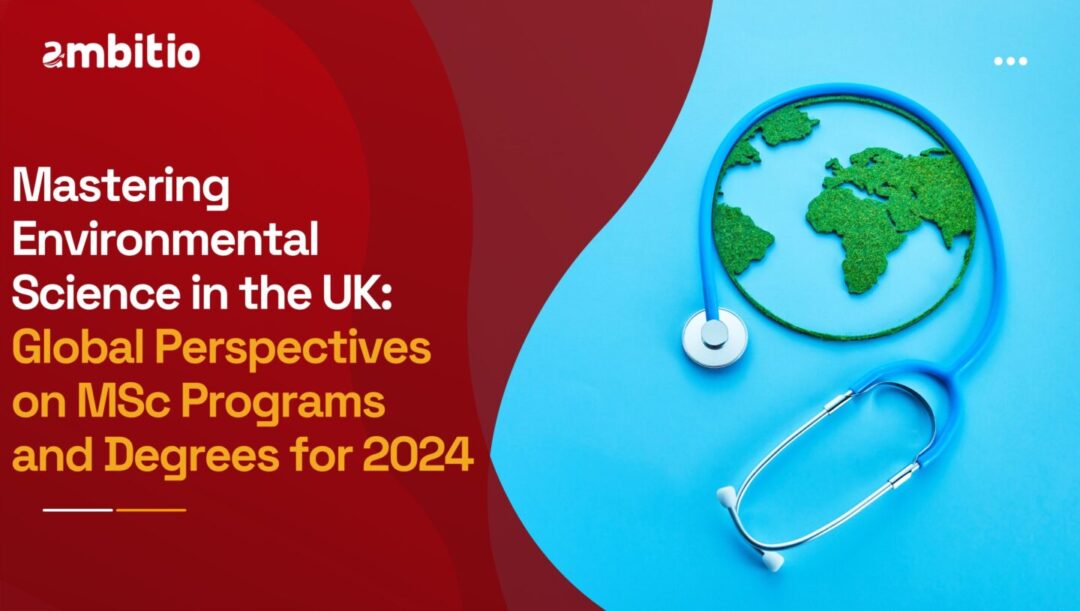
Mastering Environmental Science in the UK: Global Perspectives on MSc Programs and Degrees for 2024
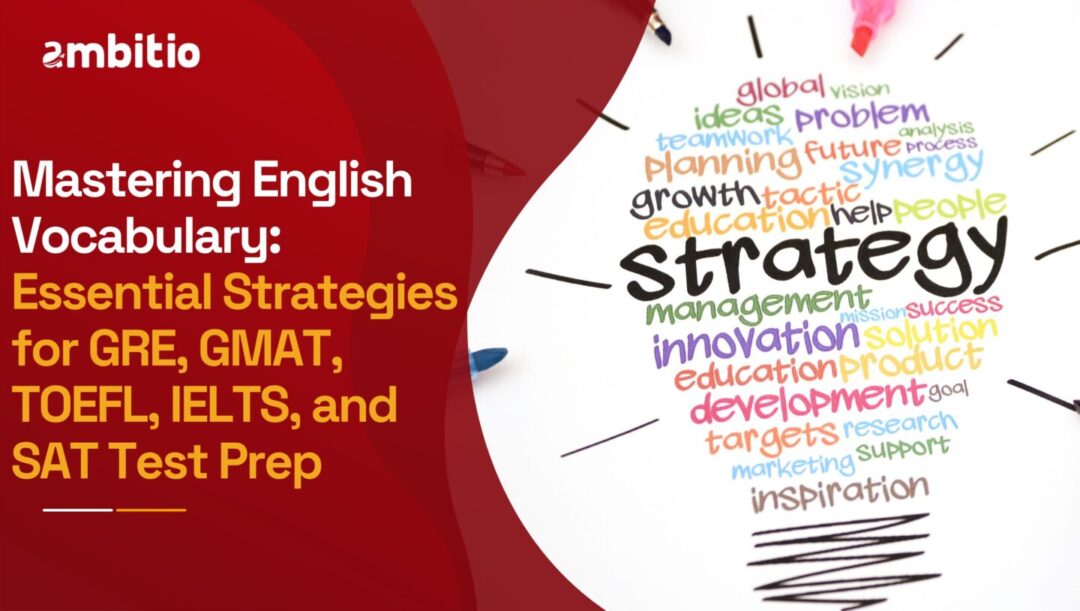
Mastering English Vocabulary: Essential Strategies for GRE, GMAT, TOEFL, IELTS, and SAT Test Prep
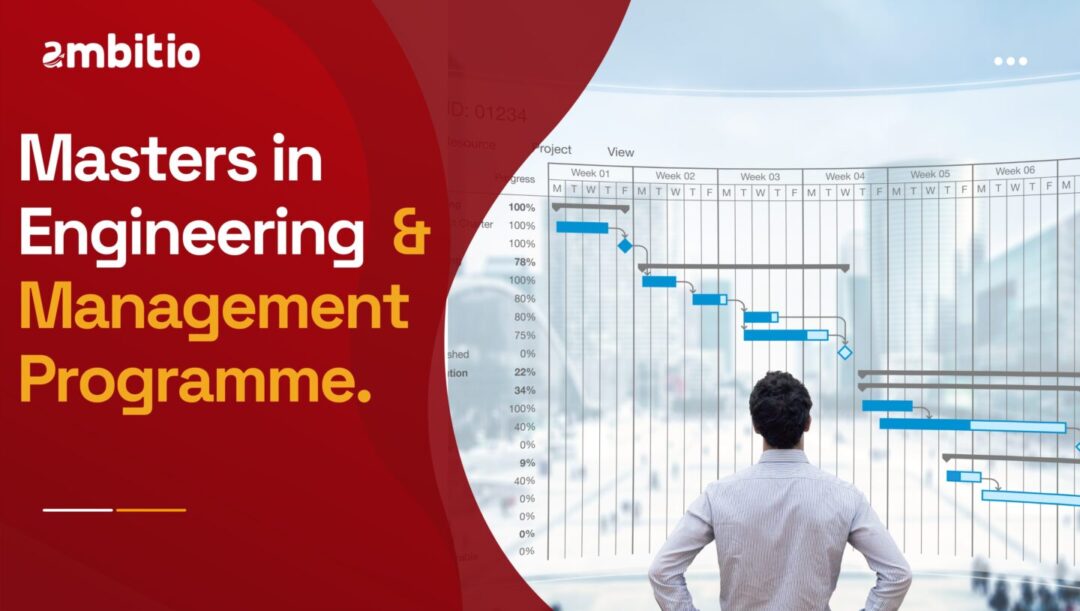
Masters in Engineering Management Programme: Exploring Top Universities, Scholarships, and Colleges for 2024
Find your Dream school now⭐️
Welcome! Let's Land Your Dream Admit.
Let us make sure you get into the best!
- 2024 Winter
- 2024 Spring
- 2024 Summer
Enter verification code
Code was sent to
- Our Experts
Connect with us on our social media
- How to Contact Us
- Library & Collections
- Business School
- Things To Do
/prod01/prodbucket01/media/durham-university/departments-/theology-amp-religion/21213.jpg)
Integrated PhD
The PhD with Integrated Studies is a hybrid degree allowing students to combine a classic PhD with taught preparation roughly equivalent to a taught MA, within a single four-year programme (eight years part-time).
In Year 1, students will be registered as taught postgraduates. Like MA students, they will study five modules: three optional 30-credit modules, and two core modules, Resources, Methods and Interpretation and a short Dissertation.
However, those two core modules will be assessed to a higher threshold than the standard MA. During the Resources, Methods and Interpretation module, students will be required to produce a 2000-word research proposal for their doctoral thesis. The aim is to ensure that by the beginning of year 2 of the programme, students will be ready to embark on independent research.
Years 2 - 4 are a classic British PhD programme, leading to the submission of a 100,000-word thesis.
Students who pass all the elements in year 1 may choose to exit with an MA qualification at that point instead of progressing to the doctoral stage. They may choose whichever specific MA qualification for which they have chosen the relevant optional modules.
In the event that a student fails to pass one or both of the Year 1 core modules at the higher Integrated PhD threshold, but does pass them at MA standard, the student will exit at the end of Year 1 with an MA.
Who is the Integrated PhD for?
The Integrated PhD is aimed at students who are intending to pursue doctoral research in Theology and Religion but who are not yet ready to embark on independent research. Candidates may apply solely on the basis of undergraduate studies or may have some postgraduate experience.
Candidates are of course welcome to apply regardless of their national background. However, the Integrated PhD may appeal particularly to those from academic cultures where taught elements within a PhD programme are the norm.
International students may also find that the immigration formalities involved in applying for a four-year programme will be simpler than those involved in pursuing a one-year MA followed by a separate three-year PhD.
What does it cost?
Durham University's standard fees apply. The fee for year 1 is at the taught postgraduate rate, and the fees for years 2-4 are at the research postgraduate rate (which is lower for home / EU students).
How do I apply?
The admission criteria are similar to those for taught MA programmes: essentially, a good first degree in Theology and Religion or another relevant subject. However, we are also looking for candidates who are likely to flourish in the full research programme through to PhD. Hence we ask for a research proposal. The first year of the degree will provide a structured opportunity to shape it further. Please do get in touch with a potential supervisor, who will be happy to discuss your application with you.
How do the two dissertations relate to one another?
The short, Year 1 dissertation (12000-15000 words in length) and the full doctoral thesis (100000 words in length) are separate pieces of work. It would be normal for students to use the short dissertation to begin exploring their doctoral research topic, and some overlap between the two is to be expected. It would not be appropriate simply to recycle sections of the earlier dissertation into the doctoral thesis, not least because students would be expected to have progressed intellectually during the course of their studies.
How do I know who my research supervisors will be?
Students are encouraged to discuss their projects with prospective supervisors before applying, and it will often be possible to give an informal indication of a likely supervisory team at this stage. However, the final decision about the supervisory team for the doctoral dissertation can only be made once the doctoral research proposal has been submitted half-way through Year 1. In all cases, students will be consulted about the appointment of supervisors.
The supervisor of the short Year 1 dissertation may well also be the lead supervisor of the doctoral thesis, but this will depend on the choice of topics and staff availability.
If you have any further questions about this programme, please email our postgraduate admissions team .
PhD (Integrated) in Economics
This is a 4-year Programme. The expected duration is 48 months, and the maximum allowed length of candidature is 60 months, if students choose to get into nominal registration role. In the first year, students entering the Integrated PhD programme are required to complete the taught elements of our MSc in Economics programme. Progression onto the research element of the programme is determined by satisfactory completion of these taught elements, with a minimum average of 60% across all modules (and a pass mark of 60% for the Level 7 dissertation) and with no module below the University pass-mark for Standalone Masters programmes. The Integrated PhD offers a structured PhD pathway that includes a wide choice of formal instruction, coupled with an extensive range of specialist research topics across the breadth of the subject. There is a progression from an initial emphasis on instructional modules towards full time research, supported by high quality supervision.
The integrated PhD programme is highly flexible and student-centred.
Programme Overview
Our postgraduate research programmes are conducted under expert individual or joint supervision. Supervisors are research-active members of staff with expertise in your area of interest. The MSc Programmes Director acts as Personal Academic Tutor to students during the taught component of the programme before the supervisory team for the research element is identified.
The course is particularly suitable for overseas students seeking to convert from other scientific disciplines, and also those who are awarded four-year scholarships through their government or other sources. Please note that there is no funding available for this programme through the University of Southampton, ESRC or NERC.
Year PhD Programme
Students entering the Integrated PhD programme are required to complete the taught elements of our MSc in Economics programme.
In the following years, students will have the opportunity to attend different complementary field modules. The field modules are taught by internationally renowned experts visiting the Economics department on a regular basis and internal academic staff.
View the Course Description Document
Apply using the University online application form . A full guide to this process may be downloaded from here.
Applications can be submitted at any time although we would encourage applicants to apply before the end of May. If you are seeking financial support for your postgraduate studies, we recommend that you apply before the end of January so you have time to gather the necessary documentation for your funding body/sponsor.
Prospective students are asked to draft a short research proposal within their application form. A research proposal is a project outline which students write as part of the application process. We use it to assess the quality and originality of their ideas, whether they are able to think critically and whether they have a grasp of the relevant literature. It also gives us important information about the perspectives students intend to take on the research area, and how you fit into the discipline area's research profile overall. This will helps us assign a suitable supervisor for your project.
It is normal for students to refine their original proposal in light of detailed literature reviews, further consideration of research approaches and comments received from the supervisors (and other academic staff). Note also that this research proposal can be updated and modified at completion of the Master’s dissertation after consultation with the supervisory team. At the application stage, what we are looking for is clear evidence of potential for successful PhD study and a proposal which reflects that.
At least two members of academic staff will consider the application.
Entry Requirements
Typical entry requirements.
The University’s Admissions Policy applies equally to all programmes of study. The following are the typical entry criteria to be used for selecting candidates for admission into the Integrated PhD programme.
Selection process
The University’s approved equivalencies for the requirements listed below will also be acceptable.
At a minimum, successful applicants must meet the admissions requirements of the University Code of Practice for Research Candidature and Supervision .
This page contains specific entry requirements for this course. Find out about equivalent entry requirements and qualifications for your country.
Programme Structure
Typical course content.
Unlike undergraduate study, the open-ended nature of research means it is not possible to always predict the structure of a programme of study leading to a thesis. The following is an indicative list. Where there is a definite requirement to undertake a certain activity this is stated.
4 Year PhD Programme
Students entering the Integrated PhD programme are required to complete the taught elements of our MSc in Economics programme. Students who satisfy the progression requirements for the iPhD proceed with PhD research.
In addition to the taught components, students can take additional training in statistical packages and also attend two library skills sessions: one at the start of the academic year and one at the start of the dissertation period. The University also provides English courses for students wishing to improve their English skills. This may be particularly useful for improving writing skills. Supervisory teams will also provide timely advice to students on this matter during the master’s dissertation period
In the following years, students will have regular meetings with their supervisory team and discuss their learning strategies as well as the progress of their research. This is the most important part of the programme. The student together with the team may decide to attend additional modules and learning activities. Students wishing to gain further training in research methods are also able to attend the specialised training offered by the National Centre for Research Methods led by the University of Southampto.
An important component of the subsequent research-based training involves participating in research workshops and seminars in Economics. All PhD students are required to present their research in one workshop per year during their third and fourth years of registration. The Department is also running weekly external speaker seminars and internal staff workshops to which PhD students are asked to attend.
Between months 30 and 33 of the start of the programme students are assessed on their performance. If students meet the requirements, they will be confirmed on the PhD programme, otherwise they may be given further time to satisfy the confirmation requirements or be asked to terminate their studies without the PhD award.
Evidence of continued progress is provided by publications and presentations in a suitable venue (e.g. an international conference). It is unlikely that further major training will be needed at this stage. The target date for submission of the PhD thesis is normally at the end of Year 4 as this may coincide with the end of any supporting studentships.
Normally, students are expected to submit their thesis by the 48th month of study. However, for students in full time registration who need a fifth year (in nominal registration role) for writing up, the final PhD thesis must be submitted at the latest by the end of the 60th month (excluding periods of suspension) unless special dispensation is granted by the Graduate School. The latter will only be granted rarely, in the case of exceptional and unforeseen circumstances.
The iPhD is typically a four-year programme, if studied full-time. In year 1 students are required to complete the taught elements of one of our two MSc Programmes (MSc in Economics, MSc in Economics & Econometrics). Students who satisfy the progression requirements for the iPhD proceed with PhD research. The following modules are only indicative examples of the options available. There is a wide array of option modules to choose from, subject to availability.
Macroeconomics Microeconomics Dissertation
Preliminary Mathematics and Statistics
Optional Students must choose ECON6004 Quantitative Method OR ECON6024 Econometrics 1. This module will become core once chosen. Quantitative Methods Finance Macroeconomic Policy 3 International Trade Labour Economics
These modules are only indicative examples of the options available. There is a wide array of option modules to choose from, subject to availability.
Fees & funding
Tuition fees.
Fees for postgraduate research degrees vary across the University. All fees are listed for UK, EU and international full-time and part-time students alphabetically by course name.
Scholarships, bursaries, sponsorships or grants may be available to support you through your course. Funding opportunities available to you are linked to your subject area and/or your country of origin. These can be from the University of Southampton or other sources.
Learning & Teaching
The learning outcomes corresponding to the taught component are:
Knowledge and Understanding
Having successfully completed this programme you will be able to demonstrate knowledge and understanding of:
A1 mathematical and statistical tools for economic analysis;
A2 the theoretical foundations of microeconomics and macroeconomics;
A3 the process of model formulation, analysis and validation in economic theory;
A4 the application of economic theory and economic reasoning to a range of topics, including the analysis of economic policy;
A5 qualitative and quantitative economic data and the appropriate methods for structuring and analysing such data;
A6 the statistical foundations of econometric methods;
A7 recent developments in econometric inference and their application to economic data;
A8 alternative approaches to quantitative modelling in economics;
A9 theoretical and empirical developments at the research frontier in two specialised areas of the subject.
Teaching and Learning Methods
- Lectures, seminars, problem classes and independent research.
Assessment Methods
- Written examinations, problem sets, project-based coursework and periodic meetings with supervisory panel.
Subject Specific Intellectual and Research Skills
Having successfully completed this programme you will be able to demonstrate the following key intellectual skills that characterise the economist's approach to problem solving and decision making:
B1 The ability to abstract the essential features of complex data and to formalise and construct a model for the critical analysis and evaluation of theory, of its application and of policy.
B2 A critical understanding of the application of inductive reasoning to assumption based models.
B3 The ability to validate empirically economic models through a process of estimation, testing and evaluation using a range of statistical methods applied to a variety of economic data.
B4 The ability to evaluate the applicability of a range of research methodologies to the conduct of economic research.
B5 The ability to formulate research questions in economics and/or econometrics and translate these into appropriate research designs.
Assessment methods
Transferable and Generic Skills
Having successfully completed this programme you will be able to:
C1 communicate complex economic arguments in both written and oral form;
C2 make effective use of a range of ICT including the Internet, word-processing, databases and spreadsheets;
C3 identify, select and access a range of sources of printed, electronic and other material as a means to the development and presentation of arguments and evidence;
C4 demonstrate awareness and understanding of the ethical and legal issues associated with the conduct of research in the social sciences;
C5 design, implement and manage a piece of research.
- Written examinations, problem sets, project-based coursework, Master’s dissertation and periodic meetings with supervisory panel.
Subject Specific Practical Skills
D1 make informed judgements on the design and effective implementation of policies to address a range of economic problems;
D2 have an extensive knowledge of the principal sources of economic information and data;
D3 master a range of statistical software for the organisation, presentation and analysis of economic data.
Career Opportunities
Successful iPhD doctorates will be able find work taking up positions as teaching and research academics. They will also be leading economic or econometric analysts in public or private sector, including central and local governments and the institutions of the European Union, in statistical offices, central banks, financial supervision authorities, international aid organisations, commercial banks and financial institutions, etc. Finally, this programme also forms a solid basis for a career in private sector in management, or in consultancy.
Study locations
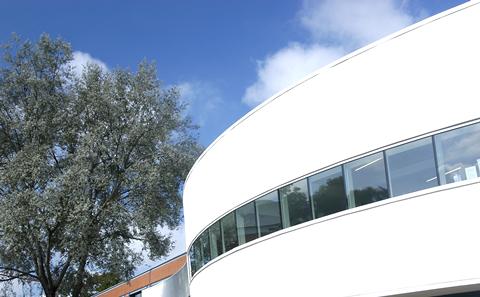
Highfield campus
Economic, Social and Political Science is based on the main campus of ... Find out more
- --> Try Free Downloads
- Computer Science & Applications
- General Paper 1
- Human Resource Management
- Library And Information Science
- Political Science
- Biotechnology (BT)
- Biological Sciences (BL)
- Mathematical Statistics (MS)
- Mathematics (MA)
- Physics (PH)
- Geology (GG)
- Chemistry (CY)
- Economics (EN)
- Chemical Sciences
- Earth Sciences
- Life Sciences
- Mathematical Sciences
- Physical Sciences
- General Aptitude
- JEE Advanced
- Computer Science And IT
- Electronics And Communication
- RRB Group D
- SSC GD Constable
- Choose Exam Goal
- About Eduncle
- Announcements

Speak With a Friendly Mentor.
- My Wishlist
- Subscribe Exams
- Try Free Downloads

- Articles (77)
- Products (104)
- Reviews
Top Resources
- Why IIT JAM?
- Tips by Toppers
- Syllabus
- Eligibility
- Question Papers
- Answer Keys
- Mock Test Download
- Our Results & Toppers
- Why Choose Eduncle?

Eduncle posted an Article
Top difference between integrated & regular phd - complete guide.
- 19 Comments

If you already have a master’s degree and thinking to take your education further or if you are fascinated by calling yourself as ‘Doctor’ then you can pursue ‘Doctorate’ Degree i.e. PhD.
A title “Doctor” applies to those who have earned a PhD degree. But, do you know what is a PhD/Doctorate Degree exactly?
A doctorate is a renowned advanced research qualification in India and the world. PhD stands for Doctor of Philosophy which is derived from the Latin word Philosophiae Doctorate.
With evolution in the education system, varieties of the doctoral degree are available in India. Regular PhD, Integrated PhD, Direct PhD and Part Time PhD come under doctorate degree.
Here in this blog, Eduncle presents the Difference Between Regular PhD and Integrated PhD.
Difference Between Regular PhD and Integrated PhD
What is Regular PhD?
Eligibility Criteria for Regular PhD
What is integrated phd, eligibility criteria for integrated phd, integrated phd vs regular phd in terms of entrance exams, regular phd entrance exams, integrated phd entrance exam.
Want to do Integrated PhD from IITs? IIT JAM is the Right Exam for You! Download JAM Free Sample Study Material - Click Here !
Choosing the best PhD degree is always be a difficult task for you. So to help you, we have provided the factors based on which you can opt the best from Regular PhD and Integrated PhD.
Free Download IIT JAM Sample Study Material to Boost Your Preparations & Achieve Success in the Exam. - " Download Here "
What is Regular PhD?
This is one of the most preferred choices among all PhD programmes. If you opt for regular PhD,then you can receive assistantship or fellowship from different institutes like UGC/CSIR or any other recognized agencies.
If you are seeking to take admission in the PhD programme must have master’s degree. Different university have different percentage criteria for the selection in Master’s.
This is a research programme, which is mainly for Science and Engineering & Technology field. Integrated PhD is the 5 years dual degree course of master’s and PhD. Generally, the first two years, you need to study the master’s course (MSc or M.Tech). After that, you need to focus on the research work and core PhD Course for next three years.
For this course, you must have atleast three - year bachelor’s degree in your core subject. For an example – If a candidate is applying for the Integrated PhD should have completed a bachelor’s degree in Chemistry. The aspirant should also have Maths at the 10 + 2 level.
Note - Eligibility depends on the admitting institute’s guidelines.
Download Free PDF of IIT JAM Mock Test Papers for All subjects and boost your speed and accuracy.
In this section, we have compiled the Top PhD Entrance Exam in India. To make you aware of different exams for which you can apply to get the doctoral degree.

This course is offered by many universities in India without taking the entrance exam. It is less time consuming as compared to the Regular PhD Course.
Have a look at the various universities of India which provide the degree of Integrated PhD.
Download IIT JAM Last 5 Years Papers to Better Understand the Difficulty Level & Types of Questions. Get Free PDF with Official Answer Keys .
Doctor of Philosophy is amongst the most honored degrees not only in India but also in abroad. PhD degree helps you to achieve the most stable career. This degree gives you the better qualification graph.
In this compiled list, we explained the differences between Integrated PhD and Regular PhD. In case you have any query regarding the difference, feel free to drop a comment. We would appreciate your valuable suggestion and information for other applicants under this post.
You can also join India’s No.1 Learning Community for IIT JAM, where you will get a doubt solution for all your exam-related queries with the help of experts from all over India. To join the community, you can download the Eduncle app now.
Thank You!!
- Integrated vs Regular PhD
- Integrated PhD
- Top difference between Regular and Integrated PhD
- difference between Regular and Integrated PhD
You Might Also Like

- Likes ( 0 )

Hello Sakshi, Welcome to Eduncle! Thanks for showing your interest. Kindly share your queries here . We would be happy to help you. Thank You!!
Sonali sharma
what is the difference between joint MSc PhD and Integrated PhD
Hello Urawashi, Greetings from Eduncle! The only difference between is that in a 'dual degree program' you cannot enter without completing your doctoral studies, whereas a combined MSc-PhD gives you the option to exit with a masters degree. Thank You!!
this is really useful information.thank you
- Likes ( 1 )
Hello Shamsun, Thank you for the kind words and support. Stay Connected!
what's about you
How has your preparation?
hey shamsun koi doubt ho to hmse pucho
sir/mam i got 33.33 marks in iit jam biotechnology 2020 . AIR is 2428. i am in sc category any chance of getting admission in IITs/NITs ?
Hello Akash, Greeting From Eduncle! You can check our blog of NIT Admission Eligibility to know the complete criteria to apply for the exam. Thank You!!
Do I get a doctorate on completion of integrated PhD
Nikita Verma
Do we have to give separate exam for getting admission in integrated phd course in IISC
any doubt u can contact me
Naresh kumar maurya
How many time we attempt iit jam exam .
Biswajit pal
is integrated phd and regular phd have same demand?
Do You Want Better RANK in Your Exam?
Start Your Preparations with Eduncle’s FREE Study Material
- Updated Syllabus, Paper Pattern & Full Exam Details
- Sample Theory of Most Important Topic
- Model Test Paper with Detailed Solutions
- Last 5 Years Question Papers & Answers
Sign Up to Download FREE Study Material Worth Rs. 500/-
I agree to the Terms and Conditions
I agree to receive exam notifications via WhatsApp.
Wait Wait Wait... !
We Have Something Special for YOU
Download FREE Study Material Designed by Subject Experts & Qualifiers
Want Enhanced Learning Experience For Exam Preparation?
- Ask Your Doubts and Get Them Answered by Exam Experts & Students' Community Members Across India
- Regular Guidance, Mentorship & Study Tips by Eduncle Experts
- Quality Content with More Than 300 Courses in Multiple Exams Curated by Experts
Enter your mobile number to get the download link.

Learning & Teaching App

Skyrocket Your Chances to RANK HIGHER in the Exam
Time management is very much important in IIT JAM. The eduncle test series for IIT JAM Mathematical Statistics helped me a lot in this portion. I am very thankful to the test series I bought from eduncle.
Eduncle served as my guiding light. It has a responsive doubt solving team which solves & provides good solutions for your queries within 24 hours. Eduncle Mentorship Services guides you step by step regarding your syllabus, books to be used to study a subject, weightage, important stuff, etc.
The General Aptitude part of Eduncle study materials were very good and helpful. Chapters of the Earth Science were also very satisfactory.
The study material of Eduncle helps me a lot. The unit wise questions and test series were helpful. It helped me to clear my doubts. When I could not understand a topic, the faculty support too was good. Thanks Eduncle.
I recommend Eduncle study material & services are best to crack UGC-NET exam because the material is developed by subject experts. Eduncle material consists a good no. of ques with online test series & mock test papers.
I am truly Statisfied with study material of Eduncle.com for English their practise test paper was really awsome because it helped me to crack GSET before NET. Thanks Team of eduncle.
Request a Call back
Let Our Mentors Help You With the Best Guidance

We have Received Your Query
Are you sure you want to Unfollow ?

How can we assist you?

Oops! You Can’t Unfollow Your Default Category.

Your profile has been successfully submitted
Kindly give us 1 - 3 week to review your profile. In case of any query, write to us at [email protected]

IMAGES
VIDEO
COMMENTS
The cost of an integrated PhD in the UK is similar to the cost of a standard PhD. Most universities charge around £4,500 per year for UK students. Fees for international students range between £17,890-28,000. Most universities charge the same amount each year for integrated PhDs, but some divide fees into a postgraduate taught rate for your ...
An Integrated Masters with a PhD (iPhD) is a four-year postgraduate level programme that combines a one-year Masters course with a three-year PhD course. They allow students to familiarise themselves with their chosen topic, research methods and academic writing techniques before embarking on their own independent research project.
What is an Integrated PhD? Integrated PhD is a research programme mainly comprising of Science, Technology, Engineering and Mathematics [] fields.Some other similar doctoral programs are also available in Arts, Social Sciences and Humanities which are funded by the Research Councils. This 5-year degree program combines a master's course with a PhD in which the first 2 years, students are ...
A new model of Doctoral training. Integrated PhDs provide a new model of postgraduate training. They retain the depth, rigour and focus of a conventional PhD while also providing a broader training experience. While the specific training routes may vary, they typically consist of a one-year Master's course (MSc or MRes) which leads straight ...
General Format. The Integrated Ph.D. Program (IPP) provides the most direct route to a Ph.D. degree in the Graduate School of Biomedical Sciences (GSBMS). In this program, students enter GSBMS without initially declaring an academic discipline. Graduates receive a Ph.D. in one of our existing programs - biochemistry & molecular biology, cell ...
The student is a PhD student exclusively and completes the PhD programme in accordance with the approved PhD plan. Part B can be commenced once the student has completed the MSc programme (part A), and the regular assessments have been satisfactory, meaning that the student has lived up to the requirements in the PhD plan. You can find more ...
An Integrated PhD combines both taught study (in your first year) as well as independent research (during the PhD element of the course). An Integrated PhD should take longer to complete than a standard PhD (because it includes the Masters-level year). Integrated PhDs are designed for students who have not previously completed a Masters course ...
Example pathway: from MSc Precision Medicine to PhD research in omics. Integrated PhD students undertaking our MSc in Precision Medicine would be well-equipped to undertake the 'Predicting response to IL6 inhibition in patients with rheumatoid arthritis' PhD project.. You would be able to apply your master's learning in the principles of stratified medicine to address an important clinical ...
An integrated PhD includes taking Masters-level modules in your first year as preparation for PhD-level research. The taught year will help develop your research skills, ready for your PhD. It covers: quantitative, qualitative and analytical methods. empirical design. programming.
Brunel Integrated PhD. The Brunel Integrated PhD combines PhD research with a programme of structured research, professional and subject training. The programme typically takes 4 years (compared to 3 years for a non-integrated PhD programme). On successful completion, you will be awarded a PhD with an Integrated Postgraduate Diploma in Research ...
The Health Sciences Integrated PhD Program offers cross-discipline training within the health sciences, spanning from informatics and program evaluation to implementation science and outcomes research.
What does an Integrated PhD means? Pursuing a postgraduate degree can be a big commitment, and it can be tough to decide which route to take. For many students, an Integrated PhD is the perfect option. This four-year programme combines a one-year Masters degree with a three-year PhD, giving you the chance to complete two degrees in less time ...
This Integrated PhD in Computer Science provides an opportunity to make a unique contribution to computer science research. You'll work within a research group, guided by experts and supported by a team of advisers. ... We do this by means of models with well-founded semantics. Open Lab Open Lab is the leading academic research centre for human ...
See Course Notes. The Doctor of Philosophy (Integrated) is a research degree commencing with a cohort-based foundation year of research preparation followed by an independent, supervised research project. The subjects covered in the first year support the development of the research project and include generic research training and discipline ...
This lecture explains about the integrated phd vs regular phd. This video tutorial explains the difference between integrated PhD and the regular PhD course....
The integrated PhDs are programs that include the study module of master's, coursework and PhD research in one single 5-year degree. The candidate needs to submit a thesis at the end of the fifth year of the degree. The traditional way to get into PhD is after master's or master's, MPhil and PhD. PhD takes 4 to 5 years and a huge amount ...
The Health Sciences Integrated Program (HSIP) offers doctoral student training in multiple disciplines within the health sciences. PhD students can choose to focus studies on: Health and Biomedical Informatics. Health Services and Outcomes Research. Healthcare Quality and Patient Safety. Social Sciences and Health. Biostatistics.
An integrated MS Ph.D. program is a combined degree program that allows students to earn both a Master's and a Doctoral degree in a specific field of study.. Unlike traditional programs where students complete their Master's degree first and then apply for a separate Ph.D. program, an integrated program streamlines the process by integrating the two degrees into a single curriculum.
Integrated PhD. The PhD with Integrated Studies is a hybrid degree allowing students to combine a classic PhD with taught preparation roughly equivalent to a taught MA, within a single four-year programme (eight years part-time). In Year 1, students will be registered as taught postgraduates. Like MA students, they will study five modules ...
The Integrated PhD offers a structured PhD pathway that includes a wide choice of formal instruction, coupled with an extensive range of specialist research topics across the breadth of the subject. ... C3 identify, select and access a range of sources of printed, electronic and other material as a means to the development and presentation of ...
Integrated Ph.D. Programme in Mathematics - August 2024. Minimum Eligibility Criteria:. Students with minimum 60% marks in aggregate (overall percentage; not only in majoring subject) or an equivalent C.G.P.A on a 10-point scale (55% or an equivalent C.G.P.A in aggregate for SC, ST and PwBD candidates) in any Bachelor's degree in related branches satisfying the above criteria of marks can apply.
This is a research programme, which is mainly for Science and Engineering & Technology field. Integrated PhD is the 5 years dual degree course of master's and PhD. Generally, the first two years, you need to study the master's course (MSc or M.Tech).
Integrated Ph. D. Programmes. The Institute offers exciting opportunities to motivated and talented Bachelor's degree holders with a keen sense of scientific enquiry for pursuing advanced research in frontier areas of Biological, Chemical, Physical and Mathematical Sciences leading to a Ph D degree. Experience shows that students entering ...